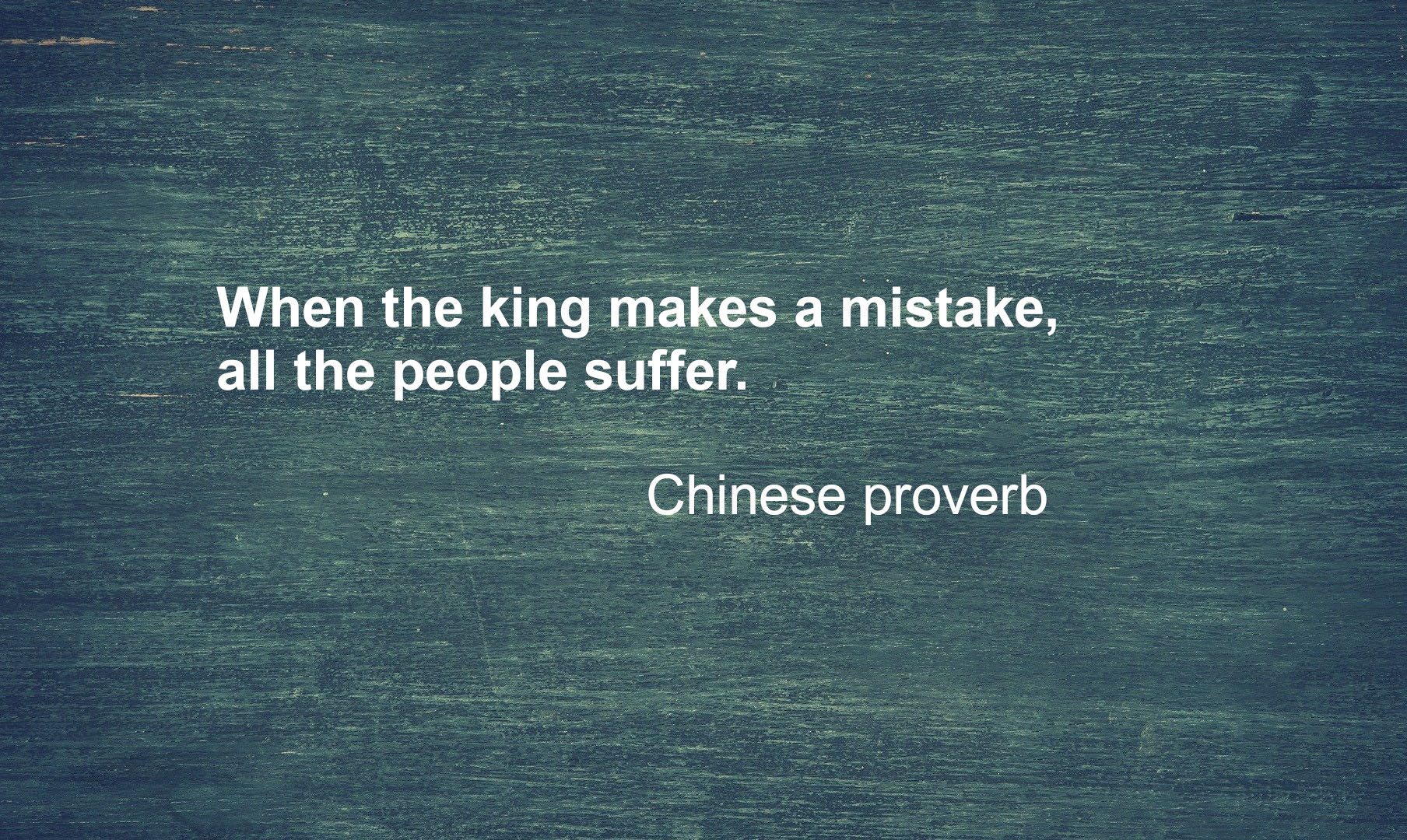 In view of the constant intensification of current events, our capacity for suffering seems to be thoroughly strained. It feels as if we have been in a kind of toughening testing phase for many months. Currently, we are challenged every day to increase our capacity for compassion, respect, and humbleness. At the same time, we need to strengthen our authenticity and our capacity for love and self-love. Perhaps we are all actually taking part in a “mankind exam” right now. And the exam result will determine our next evolutionary step.
In view of the constant intensification of current events, our capacity for suffering seems to be thoroughly strained. It feels as if we have been in a kind of toughening testing phase for many months. Currently, we are challenged every day to increase our capacity for compassion, respect, and humbleness. At the same time, we need to strengthen our authenticity and our capacity for love and self-love. Perhaps we are all actually taking part in a “mankind exam” right now. And the exam result will determine our next evolutionary step.
A chat conversation with a dear friend prompted this blog article. For she finds it depressing and also tiresome how few people want to and can hear that you can free yourself from your fears and the suffering that results from them. I agree with her and I thought the topic of suffering was worth a blog article. I thank her for this impulse.
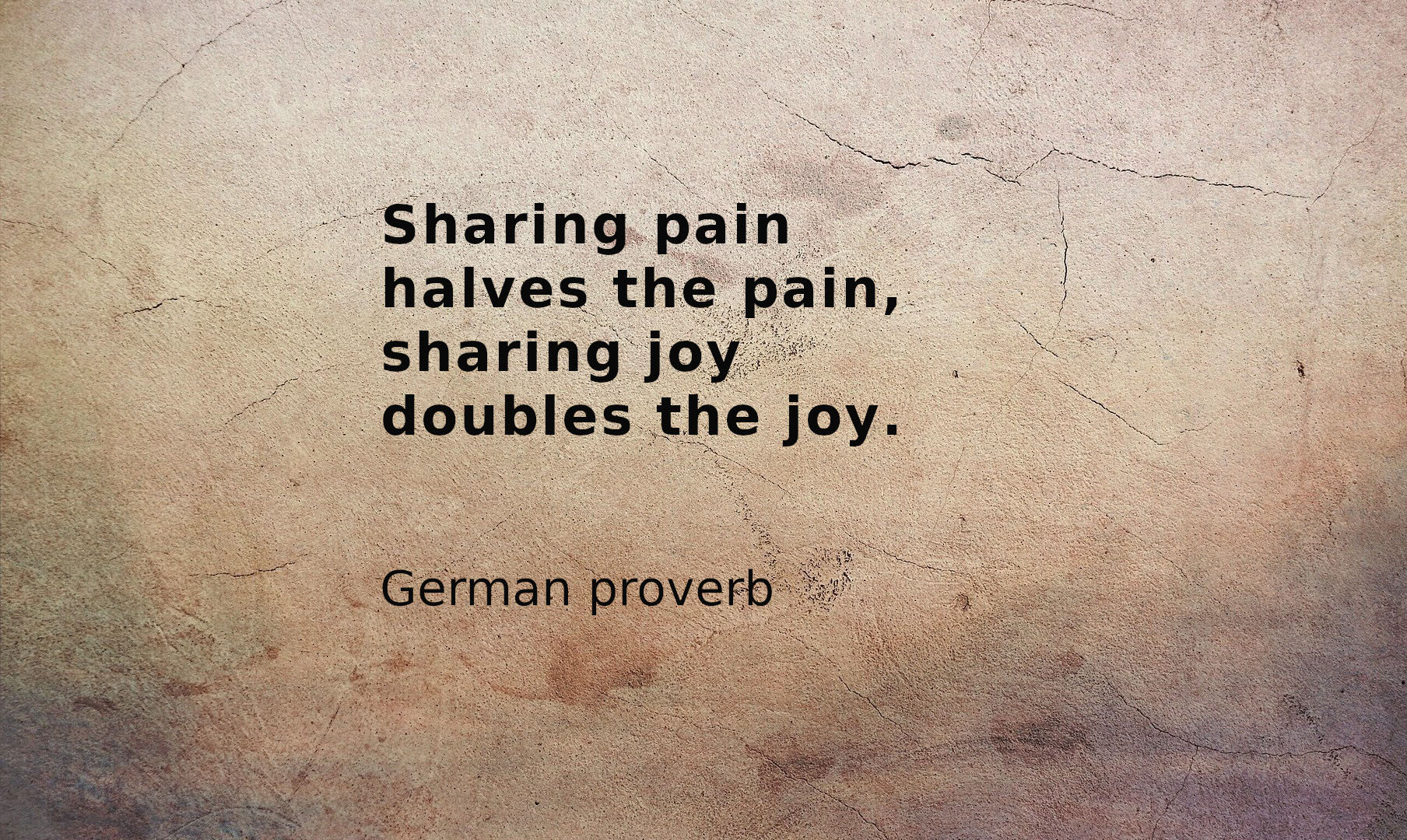 And I chose a few quotes on suffering as illustrations. They do not necessarily reflect my attitude. They are merely meant to show how long and deeply the subject has been part of our life and also our cultures. For suffering and even the suffering of being human (‘the malaise of the human condition’) has long been a literary topos. I canl only touch on that here.
And I chose a few quotes on suffering as illustrations. They do not necessarily reflect my attitude. They are merely meant to show how long and deeply the subject has been part of our life and also our cultures. For suffering and even the suffering of being human (‘the malaise of the human condition’) has long been a literary topos. I canl only touch on that here.
Suffering is a super glue
It never ceased to amaze me that we live in a world where suffering strengthens connections to a great extent and is even community-building. In contrast, groups that bond with each other in fun and enjoyment are readily viewed as superficial and non-committal.
I know of couple relationships whose primary “glue” of togetherness is their shared suffering. For example, difficult parents or children. Or financial lack or illness. I even know of some couples who found each other in support groups. So, their main point of attraction was addiction, abuse, or illness… If a couple does not overcome this together, they run the risk of perpetuating the bonding source of suffering in order to maintain the relationship.
Suffering from loneliness
This is why I have a certain aversion to dating platforms. Even though I know a few couples who have actually met a suitable partner. But I know of even more people who have been unlucky. Because the big common resonance is loneliness, lack of intimacy, longing and neediness. And with this suffering, the providers are actually earning their money. For them searching singles are far more profitable than happy couples. Energetically, this is a very difficult basis for a potential healthy togetherness.
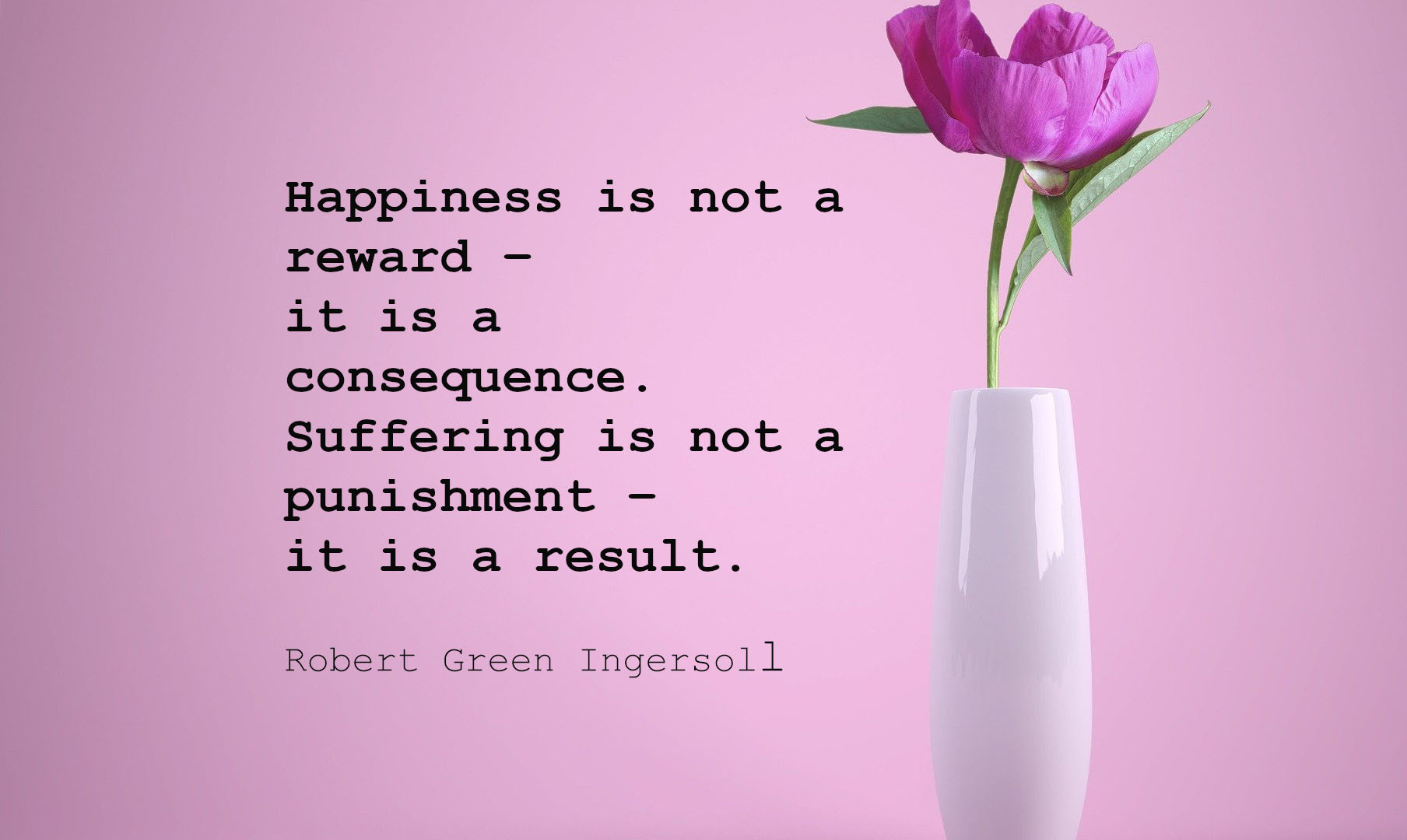 From my point of view, a health-promoting dating platform would have a different approach. The common resonance field of couples should be in the joy of their own being, healthy self-love and desire to share their passions. Compatibility would not be calculated by any algorithms but would be determined by a quantum computer based on names and birth dates. And this platform would be free of charge, of course! It would be financed by voluntary donations and/or advertisements for vacations, wellness, good restaurants, gyms, bridal fashions and wedding planners etc….
From my point of view, a health-promoting dating platform would have a different approach. The common resonance field of couples should be in the joy of their own being, healthy self-love and desire to share their passions. Compatibility would not be calculated by any algorithms but would be determined by a quantum computer based on names and birth dates. And this platform would be free of charge, of course! It would be financed by voluntary donations and/or advertisements for vacations, wellness, good restaurants, gyms, bridal fashions and wedding planners etc….
Suffering is not only socially acceptable, but morally valuable
However, couples are not the only ones who unite in suffering against the evil rest of the world. Suffering is also a great common denominator in many cultures and religions. Viennese coffeehouses are famous for their prominent characters who give entertaining expression to their suffering of worldly affairs. They rant, nag, and complain that it’s a delight!
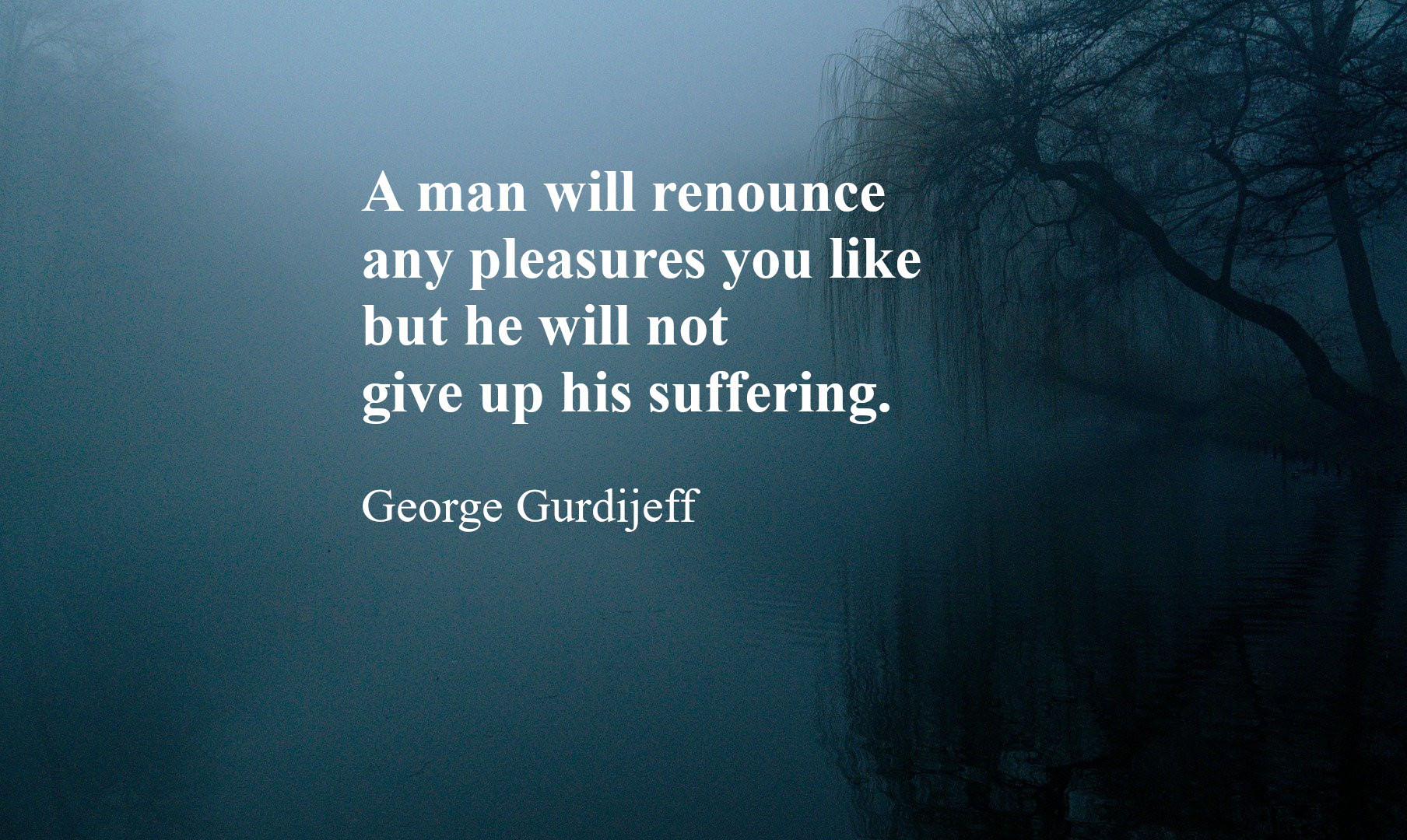 Complaining in unison unites people all over the world. For it is only from those who have experienced the same misery that we truly feel seen, understood and often comforted. Often there is even a subtle competition to see who is the worst off. This is very rewarding for all involved. For the one who suffers the most may consider himself the “winner,” while the others can cultivate the good feeling of not being quite so badly off….
Complaining in unison unites people all over the world. For it is only from those who have experienced the same misery that we truly feel seen, understood and often comforted. Often there is even a subtle competition to see who is the worst off. This is very rewarding for all involved. For the one who suffers the most may consider himself the “winner,” while the others can cultivate the good feeling of not being quite so badly off….
The pitfalls of the helper syndrome
Fortunately, helping to alleviate the suffering of others gives many people a great spiritual and often also moral lift. But this also has its painful downsides. On the one hand, I have observed that a certain resentment can arise if the person being helped does not show the proper appreciation and gratitude. This means that the help is no longer a selfless act but serves to boost one’s own self-worth. Some go so far that they neglect themselves and literally “sacrifice” themselves for the other person. This can lead to cancer, among other things. This is completely independent of whether the recipient of the help appreciates it or not, by the way.
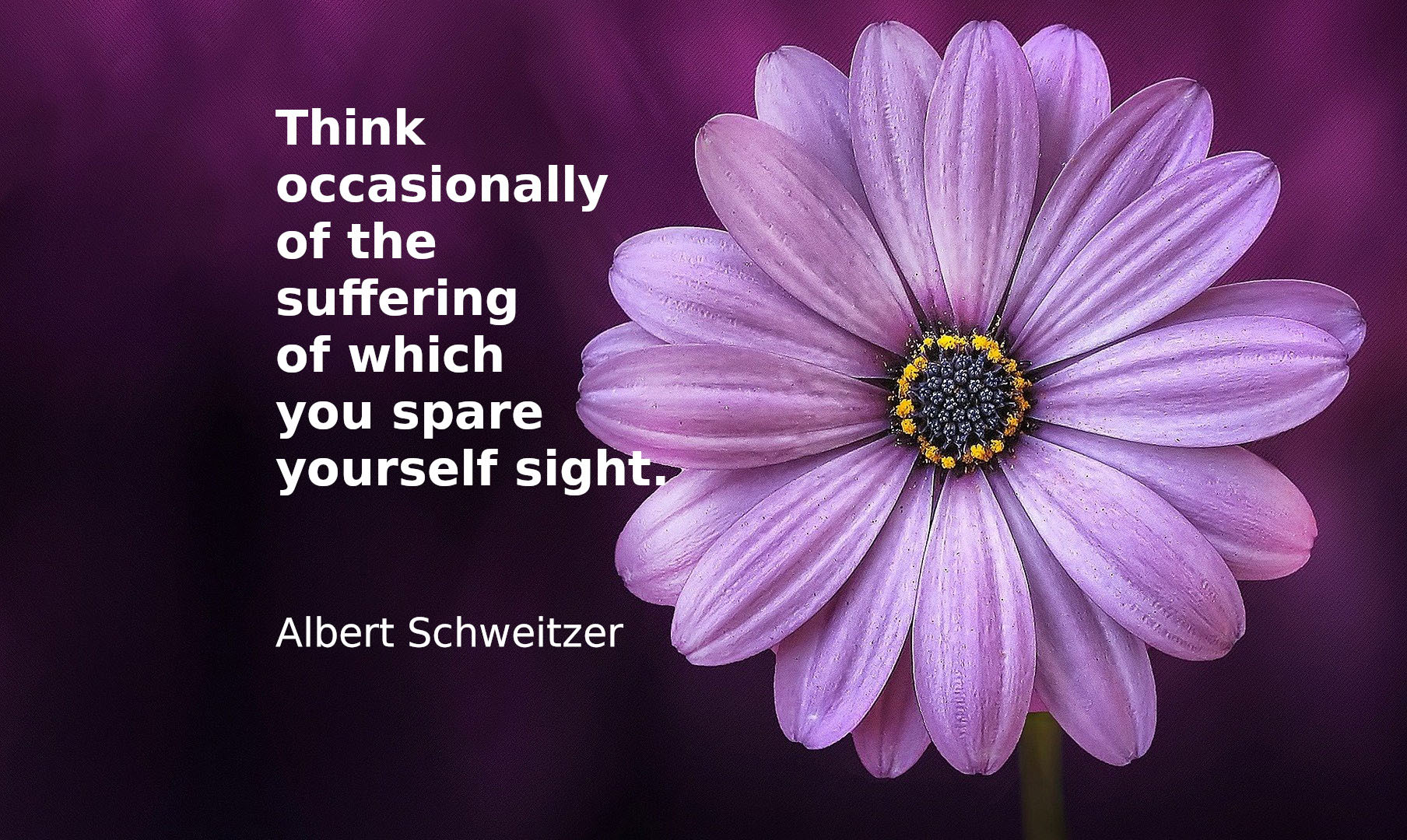 In addition, a massive perceived imbalance arises. Because the one who has been helped has no chance to compensate this attention in the same measure. Giving and receiving slip out of a healthy balance into a more or less subtle power dynamic. Then one person constantly has the uneasy feeling that he owes something to the other. While the other always has the feeling that he is owed something. This makes both unfree and creates suffering! For unconditional giving must be connected to unconditional receiving. But receiving is much more difficult for most people than giving.
In addition, a massive perceived imbalance arises. Because the one who has been helped has no chance to compensate this attention in the same measure. Giving and receiving slip out of a healthy balance into a more or less subtle power dynamic. Then one person constantly has the uneasy feeling that he owes something to the other. While the other always has the feeling that he is owed something. This makes both unfree and creates suffering! For unconditional giving must be connected to unconditional receiving. But receiving is much more difficult for most people than giving.
Profiting from the suffering of others
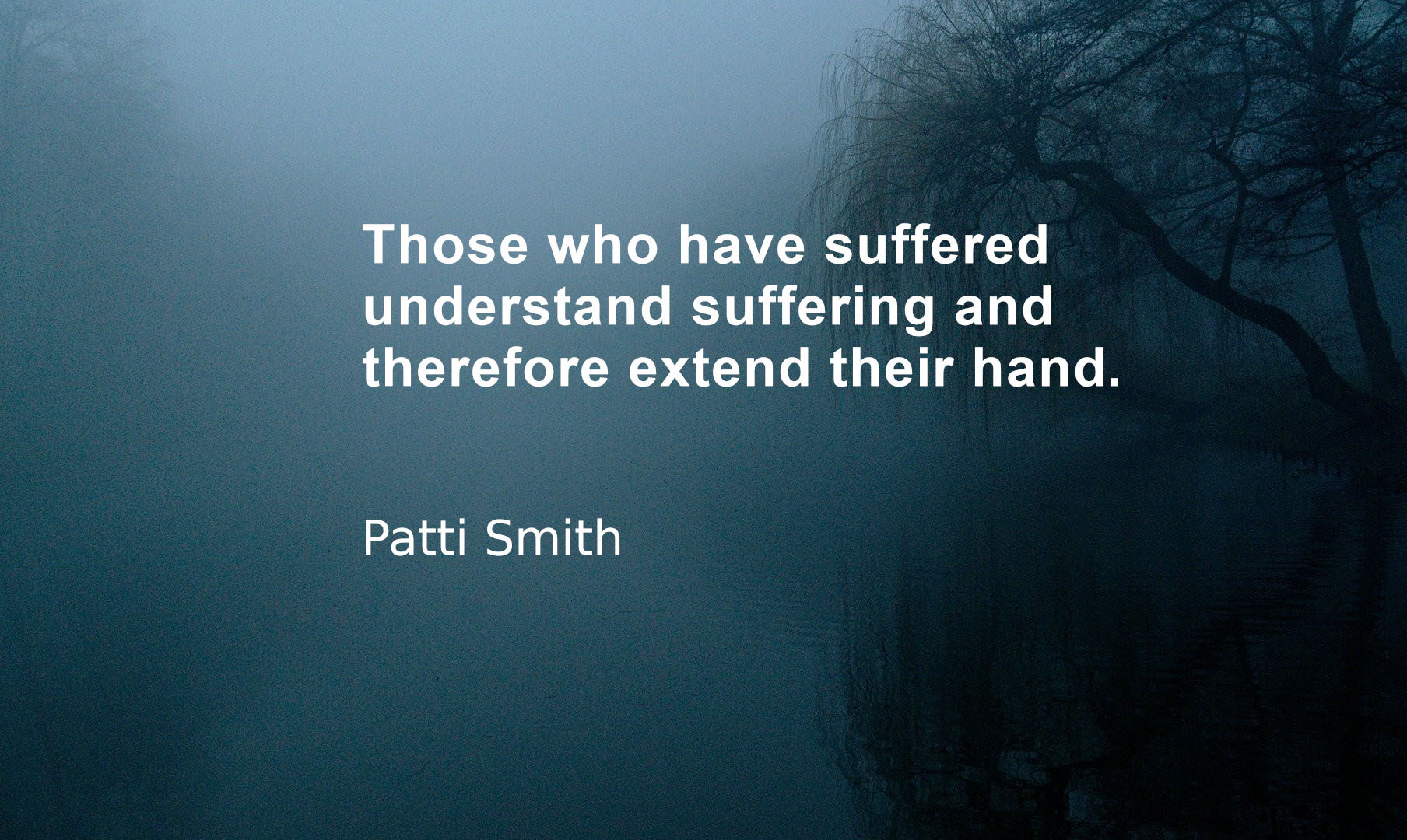 As a life coach, I struggled for quite a while with the fact that, strictly speaking, I earn my money with the suffering of others. In a nutshell, “In order for me to do well, others have to do poorly.” But after a deep process, I was able to transform this for myself. Now I say, “Together we work to make everyone involved better and better.” I now regard my work with clients as a joint creative act. We help each other to achieve greater joy of being, health and abundance. By the way, since I’ve been cultivating this view, I’ve had far more clients, and financially solvent ones, too!
As a life coach, I struggled for quite a while with the fact that, strictly speaking, I earn my money with the suffering of others. In a nutshell, “In order for me to do well, others have to do poorly.” But after a deep process, I was able to transform this for myself. Now I say, “Together we work to make everyone involved better and better.” I now regard my work with clients as a joint creative act. We help each other to achieve greater joy of being, health and abundance. By the way, since I’ve been cultivating this view, I’ve had far more clients, and financially solvent ones, too!
Suffering and faith
The question of the why of human suffering plays an important role in all religions. That is why it has been discussed by clever theologians and philosophers for ages. I will hardly be able to do justice to it. Therefore, I limit myself here only to a casual summary: all religions agree that suffering belongs to the life of the human being in a natural way! And how the individual deals with it shows his measure of wisdom, humbleness and trust in his faith. Every religion also offers its own path to salvation. They help some people, others less.
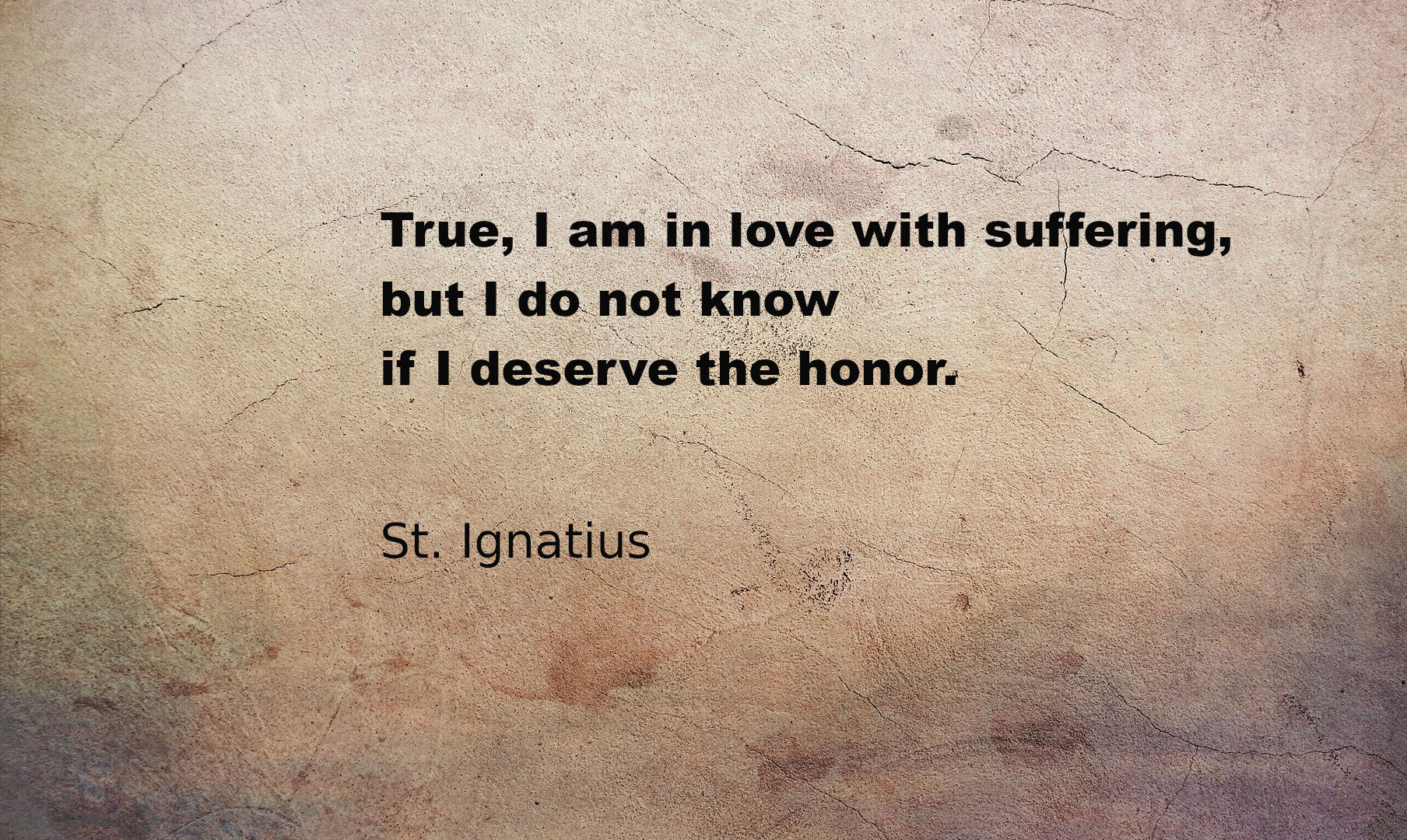 Some people even believe – partly fueled by their religious representatives – that mighty suffering, deprivation and sacrifice will eventually be rewarded. Alas, not in this life, but only after death. The prospect of heavenly paradise has comforted many people over their suffering earthly existence for centuries.
Some people even believe – partly fueled by their religious representatives – that mighty suffering, deprivation and sacrifice will eventually be rewarded. Alas, not in this life, but only after death. The prospect of heavenly paradise has comforted many people over their suffering earthly existence for centuries.
From my point of view, something is mixed up here. Sometimes long-term gain requires short-term sacrifice. This is an economic principle. If you make a profit, you should not immediately spend it all again, but should reinvest a part of it. So, do not eat all the corn grains of a harvest, but keep back a part for the next sowing, even if you may then have a little less to eat. But to believe that a benevolent divine authority rewards our suffering more than our health, love and joy of life – is not comprehensible for me.
Suffering as a basis of art
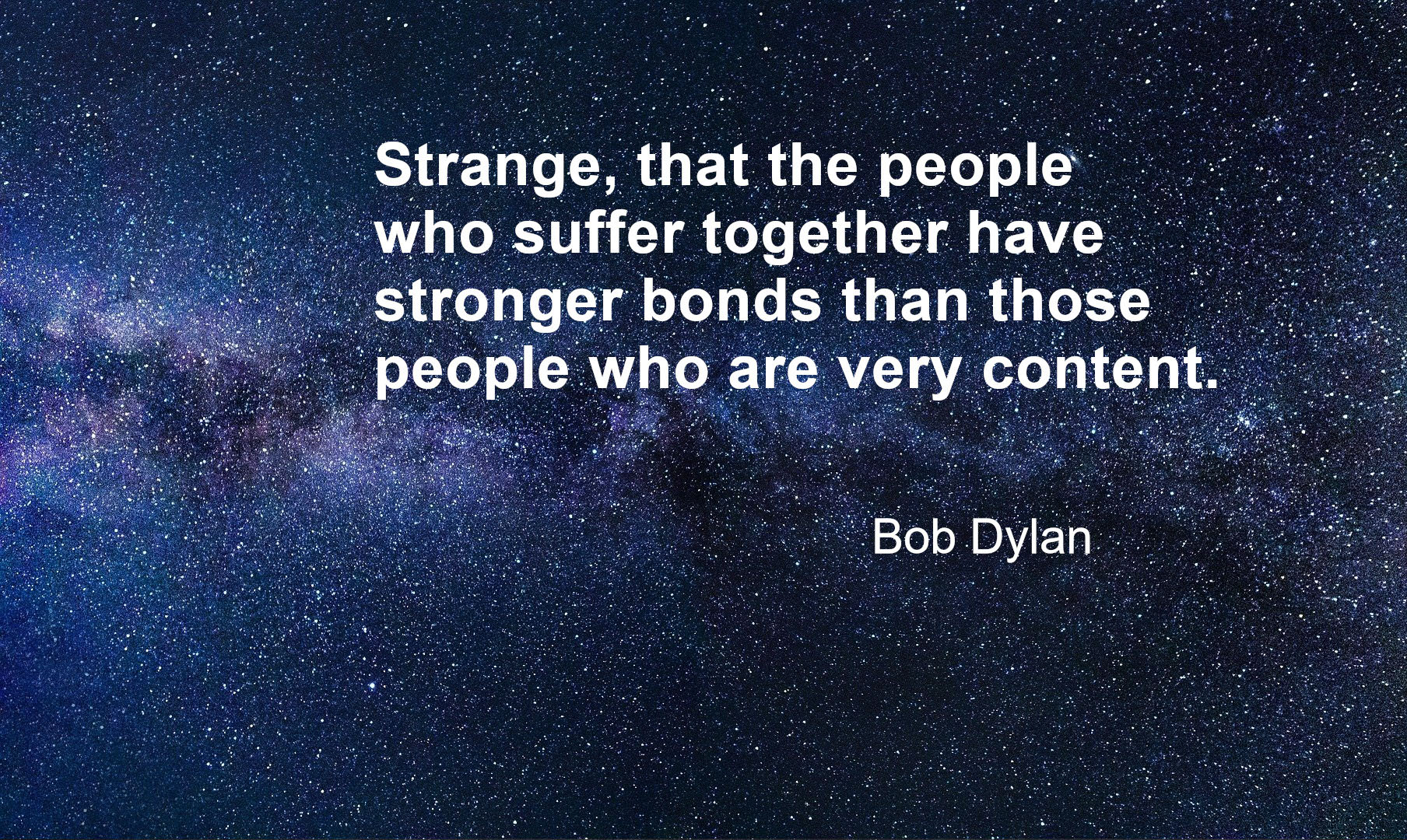 Strictly speaking, it is not only about the experienced suffering, but the extensive complaining about it. For example, about the partner, the family, the state, the fate, and the dear Lord… Lamenting and complaining have even become their own art form. By this I do not only mean the mourning songs and lament singers, which help to process the pain suffered, such as the loss of a loved one. But also, all those novels, poems, films, songs, and operas that really are litanies of discontent. No matter how beautiful and artistically valuable they may be.
Strictly speaking, it is not only about the experienced suffering, but the extensive complaining about it. For example, about the partner, the family, the state, the fate, and the dear Lord… Lamenting and complaining have even become their own art form. By this I do not only mean the mourning songs and lament singers, which help to process the pain suffered, such as the loss of a loved one. But also, all those novels, poems, films, songs, and operas that really are litanies of discontent. No matter how beautiful and artistically valuable they may be.
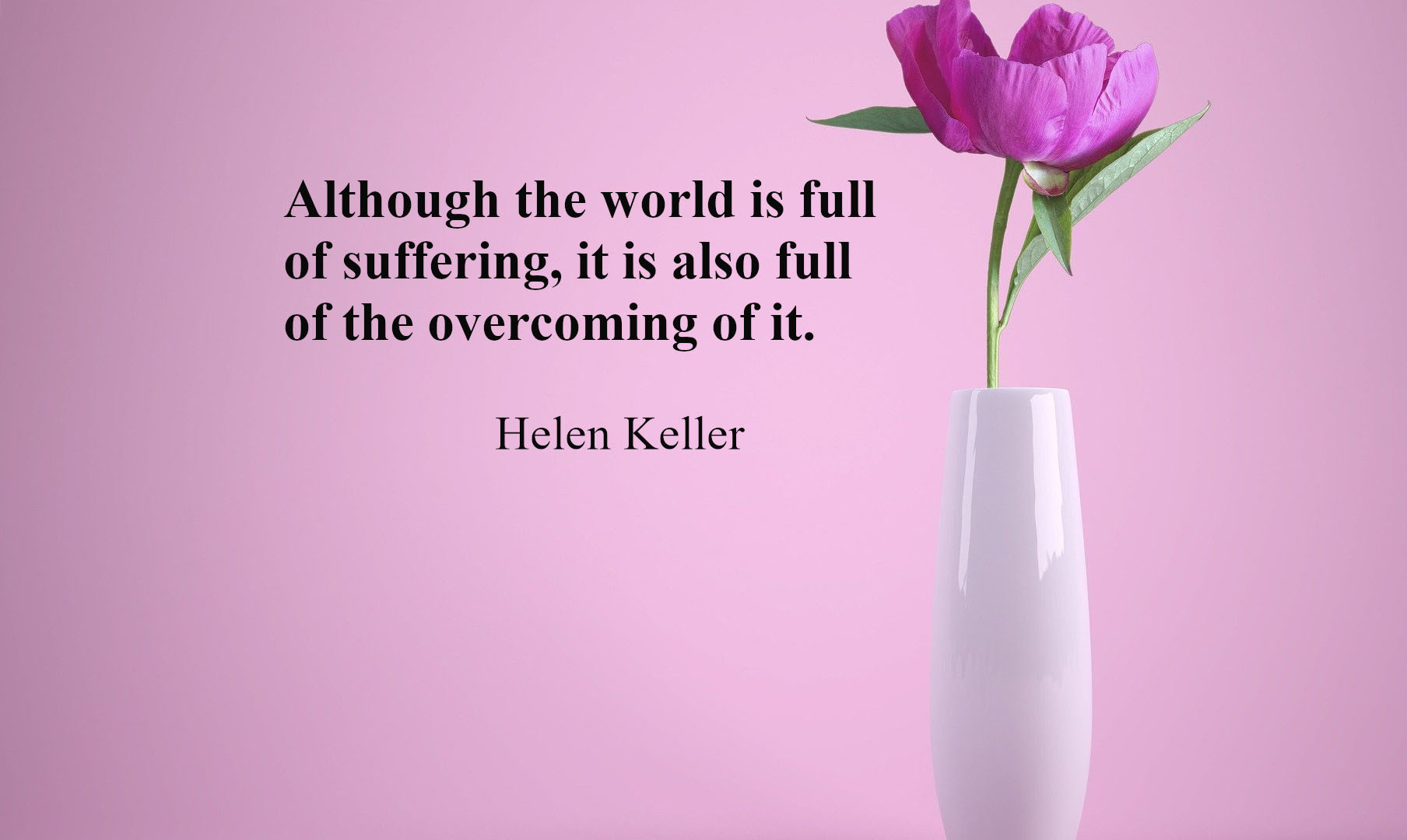 And many artists explain again and again that it was precisely the unhappy time in their lives that motivated them to work through their pain creatively. Many artists are actually far more productive when they are struggling with their lives. But fortunately, suffering is absolutely no prerequisite for the creation of good works! You can also create from joy!
And many artists explain again and again that it was precisely the unhappy time in their lives that motivated them to work through their pain creatively. Many artists are actually far more productive when they are struggling with their lives. But fortunately, suffering is absolutely no prerequisite for the creation of good works! You can also create from joy!
However, it’s also said among comedy writers, “If you don’t know what suffering is, you can’t really be funny…” Because, of course, a lot of humor springs from how we deal with life’s adversities. Some even build their careers on it. That’s certainly true of many comedians. This also reminds me of the Austrian playwright Thomas Bernhard and the American filmmaker Woody Allen.
A right to complain
I’ve had conversations with people who told me with annoyance, that complaining has far too bad a reputation! They believe that giving expression to one’s suffering and being heard and validated by others can be very healing. I personally believe that this is once again a matter of healthy moderation. Of course, one should not gloss over anything that is ruining one’s life. But to lament this over and over again in order to elicit sympathy and approval, I consider rather questionable. Personally, I prefer those who, after naming the grievances, look for healthy solutions.
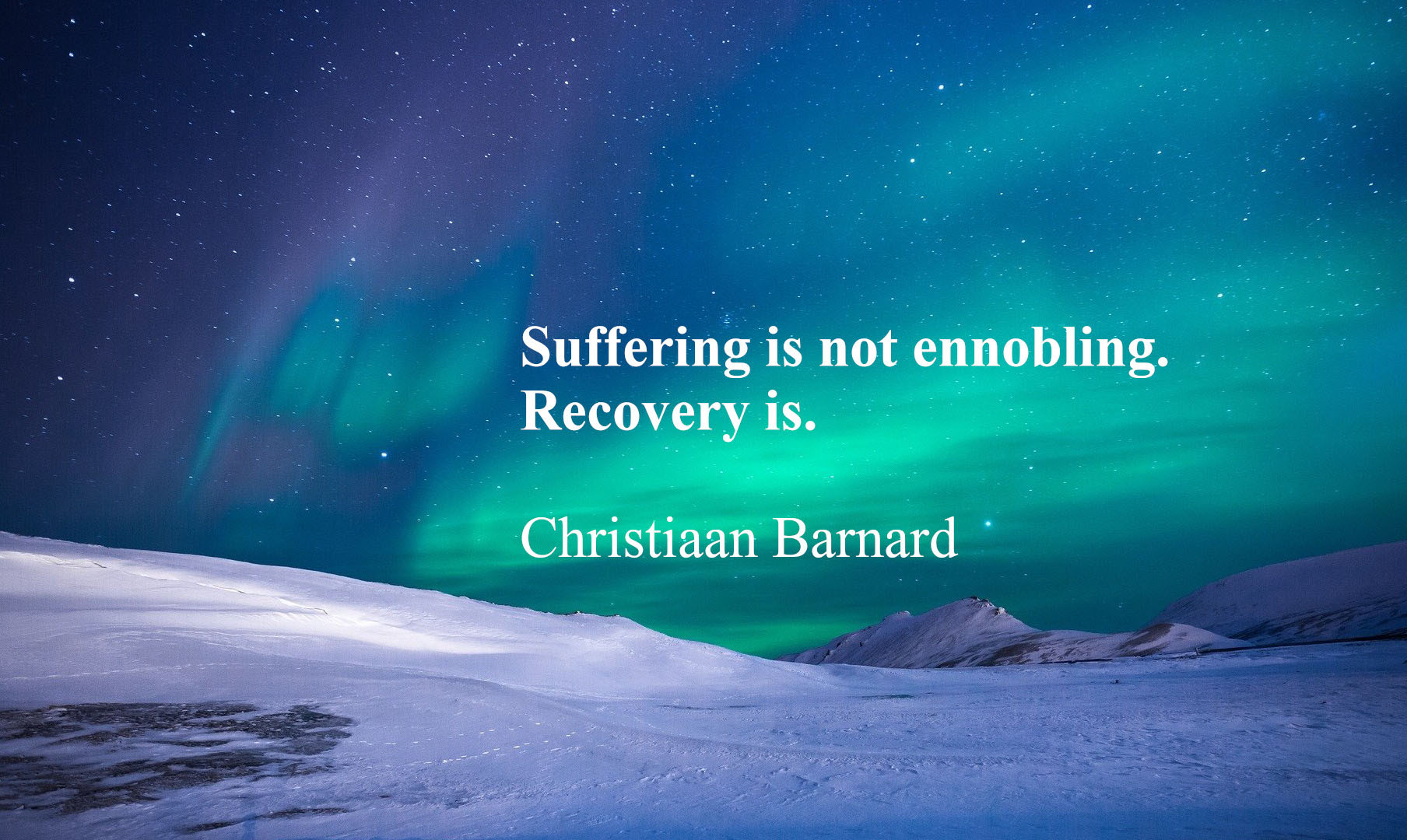 Whining can bore me beyond belief. Especially when it becomes an end in itself. I like to avoid such people. In my student days, there were always some jokers who would pull a card out of their pocket and present it to the complainer. It said: “I have never heard of greater misery than yours. Please take this card as a token of my sympathy.” In the 2000s, I also more often saw the T-shirt that read, “Whine elsewhere.”
Whining can bore me beyond belief. Especially when it becomes an end in itself. I like to avoid such people. In my student days, there were always some jokers who would pull a card out of their pocket and present it to the complainer. It said: “I have never heard of greater misery than yours. Please take this card as a token of my sympathy.” In the 2000s, I also more often saw the T-shirt that read, “Whine elsewhere.”
Suffering is always highly individual
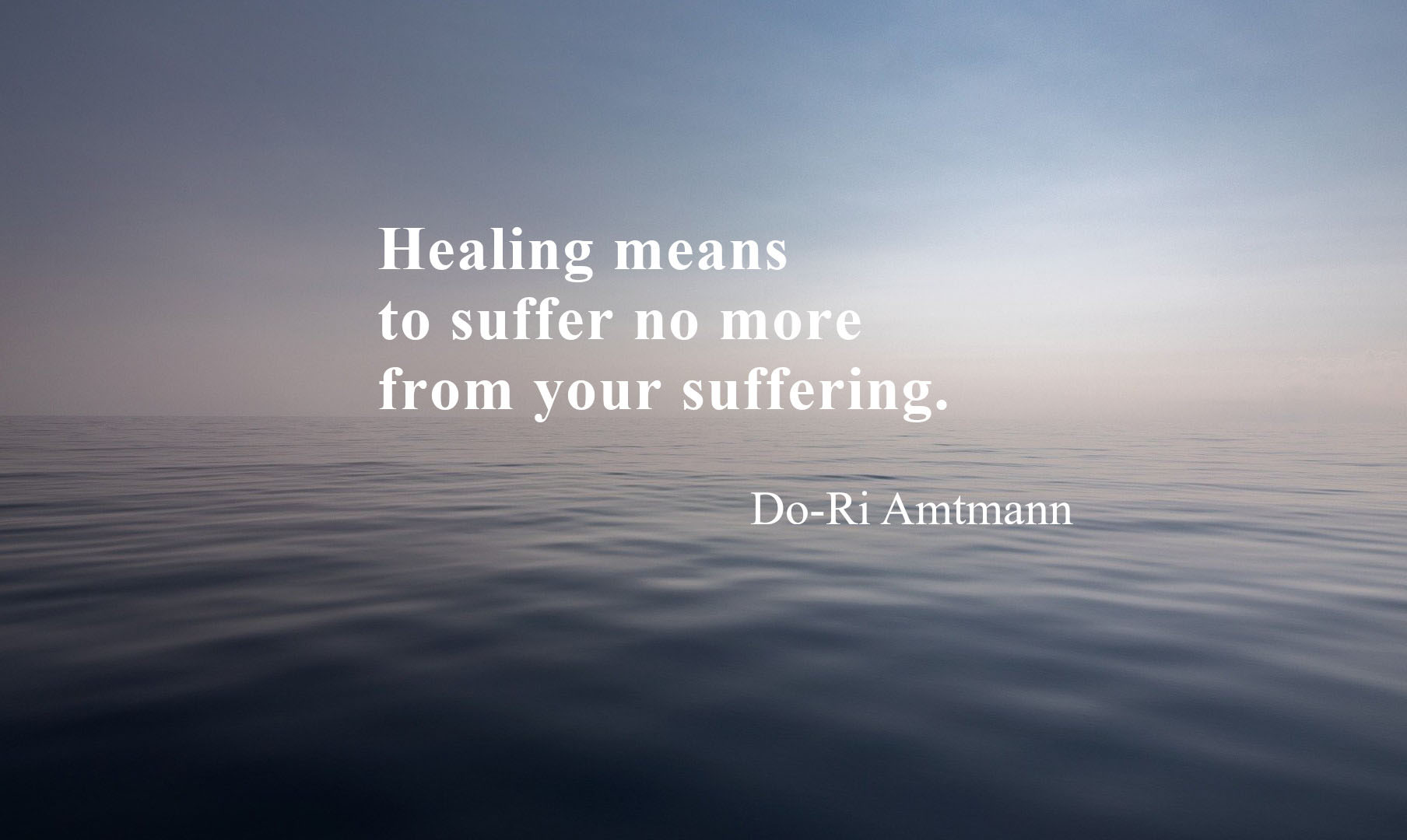 Of course, there are terrible things that can happen to people, such as a serious car accident, famine, the loss of a loved one, violence, abuse, serious illness and so much more. Yet, I am always amazed at how very differently people deal with it.
Of course, there are terrible things that can happen to people, such as a serious car accident, famine, the loss of a loved one, violence, abuse, serious illness and so much more. Yet, I am always amazed at how very differently people deal with it.
Our perception, our behavior and our inner attitude determine how we experience a painful situation. What can be a violent tornado for one might be a light breeze to another. Some are broken for life by a single experience. Others go through more horrible things than one might imagine and still remain life-affirming, loving and future-oriented.
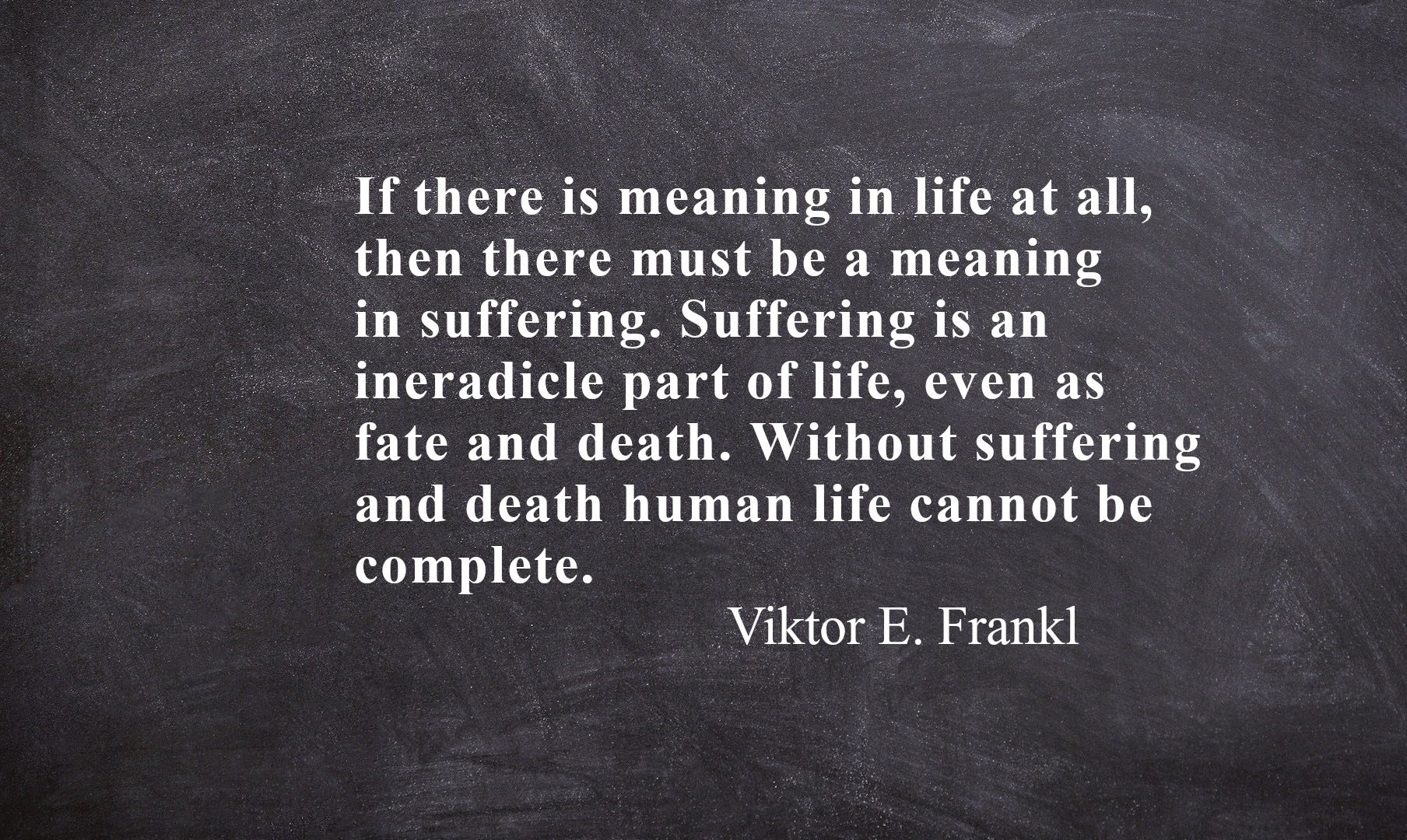 No matter how terrible the circumstances at hand, there are always people who come out of it all the wiser, more aware, and more inspiring to others. Here two Holocaust survivors, Viktor Frankl and Edith Eva Eger come to mind.
No matter how terrible the circumstances at hand, there are always people who come out of it all the wiser, more aware, and more inspiring to others. Here two Holocaust survivors, Viktor Frankl and Edith Eva Eger come to mind.
Suffering 2.0. seems to characterize our time
Meanwhile, many of us are more challenged than ever before. In contrast, most of the problems of our experienced past seem downright trivial. For suddenly things are an issue that never were before. The protection and preservation of our health, our freedom to travel, our relaxed coexistence, our political self-determination and our freedom of expressing our opinion are all at stake. For some more, for others less – depending on their perception and positioning.
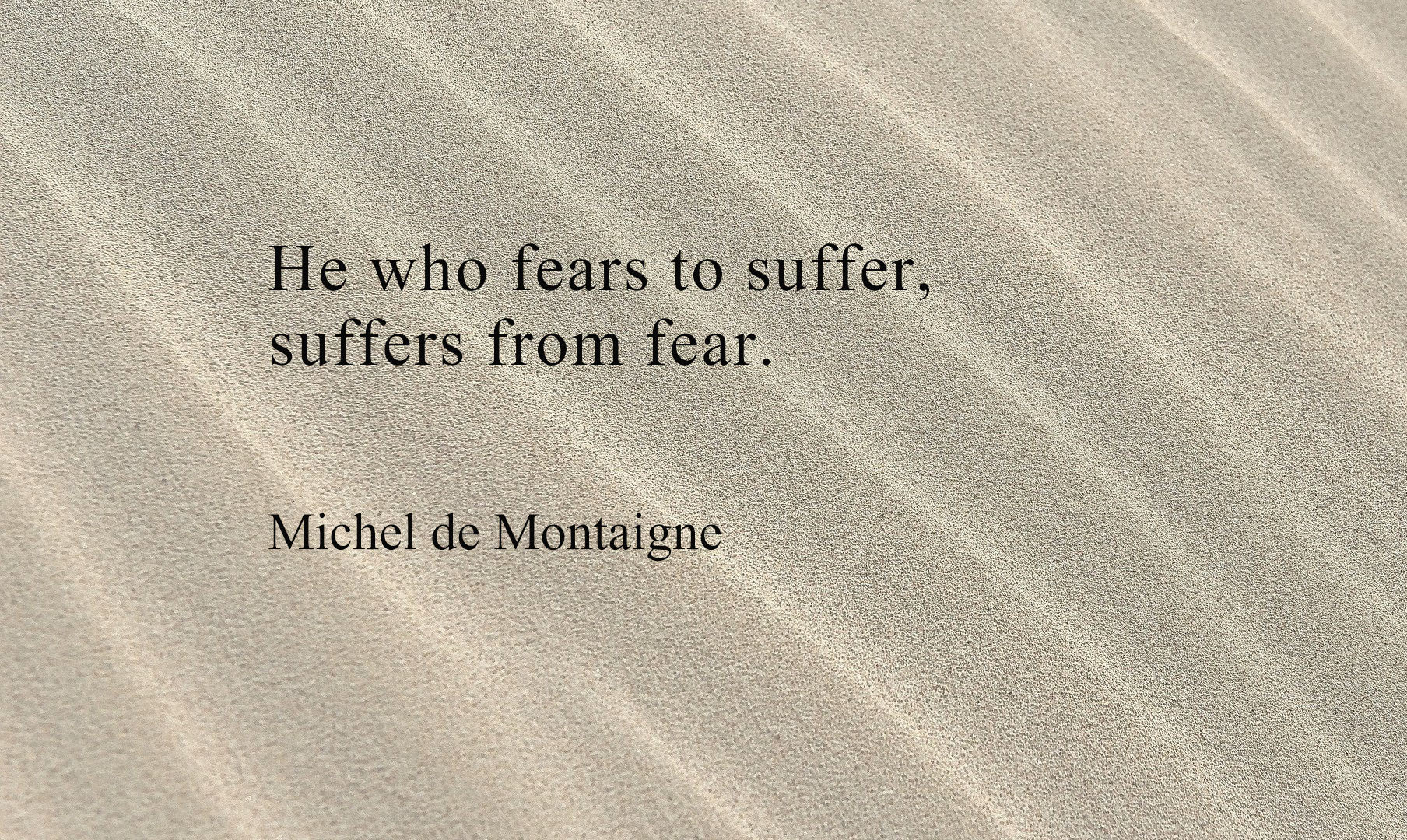 And so, we are challenged to deal constructively with this “upgrade in suffering.” This means a conscious confrontation with our own fears. Such as fears of loss, fears of deprivation, fears of existence and even fears of death… In addition, we are challenged to examine how our ability to trust stands and when and to what extent our mistrust is justified. I am reminded of something that, according to a dear friend, a Latvian student said at the beginning of the Corona crisis, which rather touched me: “I’d rather get sick than having to distrust my own friends.”
And so, we are challenged to deal constructively with this “upgrade in suffering.” This means a conscious confrontation with our own fears. Such as fears of loss, fears of deprivation, fears of existence and even fears of death… In addition, we are challenged to examine how our ability to trust stands and when and to what extent our mistrust is justified. I am reminded of something that, according to a dear friend, a Latvian student said at the beginning of the Corona crisis, which rather touched me: “I’d rather get sick than having to distrust my own friends.”
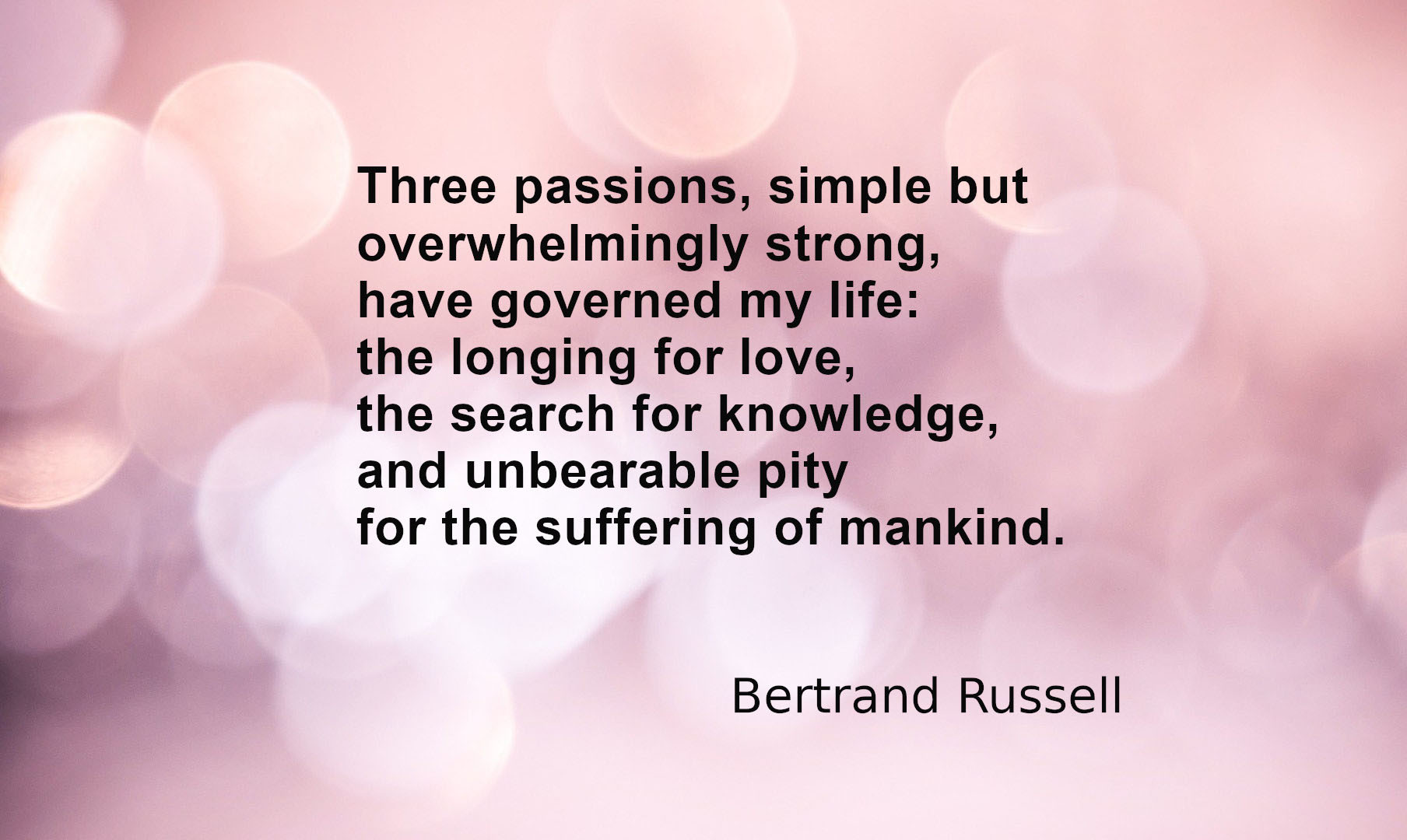 And finally, it is about our perception and sensation regarding truth and reality themselves. Many of us realize with more or less astonishment that people from their very closest environment evaluate these completely differently than we do. Where once there was unquestionable solidarity, now a strong wind blows us into different camps. Often even to others and even strangers. We would have never thought that we could feel a stronger connection to them than to the people in our familiar surroundings. But suddenly age, origin, status, faith, and nationality play a much smaller role than personal truthfulness and a clear positioning based on one’s own experience. And, of course, a similar assessment of what is happening – also in terms of joy and sorrow.
And finally, it is about our perception and sensation regarding truth and reality themselves. Many of us realize with more or less astonishment that people from their very closest environment evaluate these completely differently than we do. Where once there was unquestionable solidarity, now a strong wind blows us into different camps. Often even to others and even strangers. We would have never thought that we could feel a stronger connection to them than to the people in our familiar surroundings. But suddenly age, origin, status, faith, and nationality play a much smaller role than personal truthfulness and a clear positioning based on one’s own experience. And, of course, a similar assessment of what is happening – also in terms of joy and sorrow.
The pressure of suffering is increasing
And this movement seems to be just at the beginning. My feeling is that we have not yet reached the maximum level of suffering. Sadly, for many it is already too much. I hear about suicides more often than ever before. However, exact figures are not yet available. And depression and despair have also increased. Psychiatrists are experiencing a rush right now. The use of sleeping pills and tranquilizers has also increased.
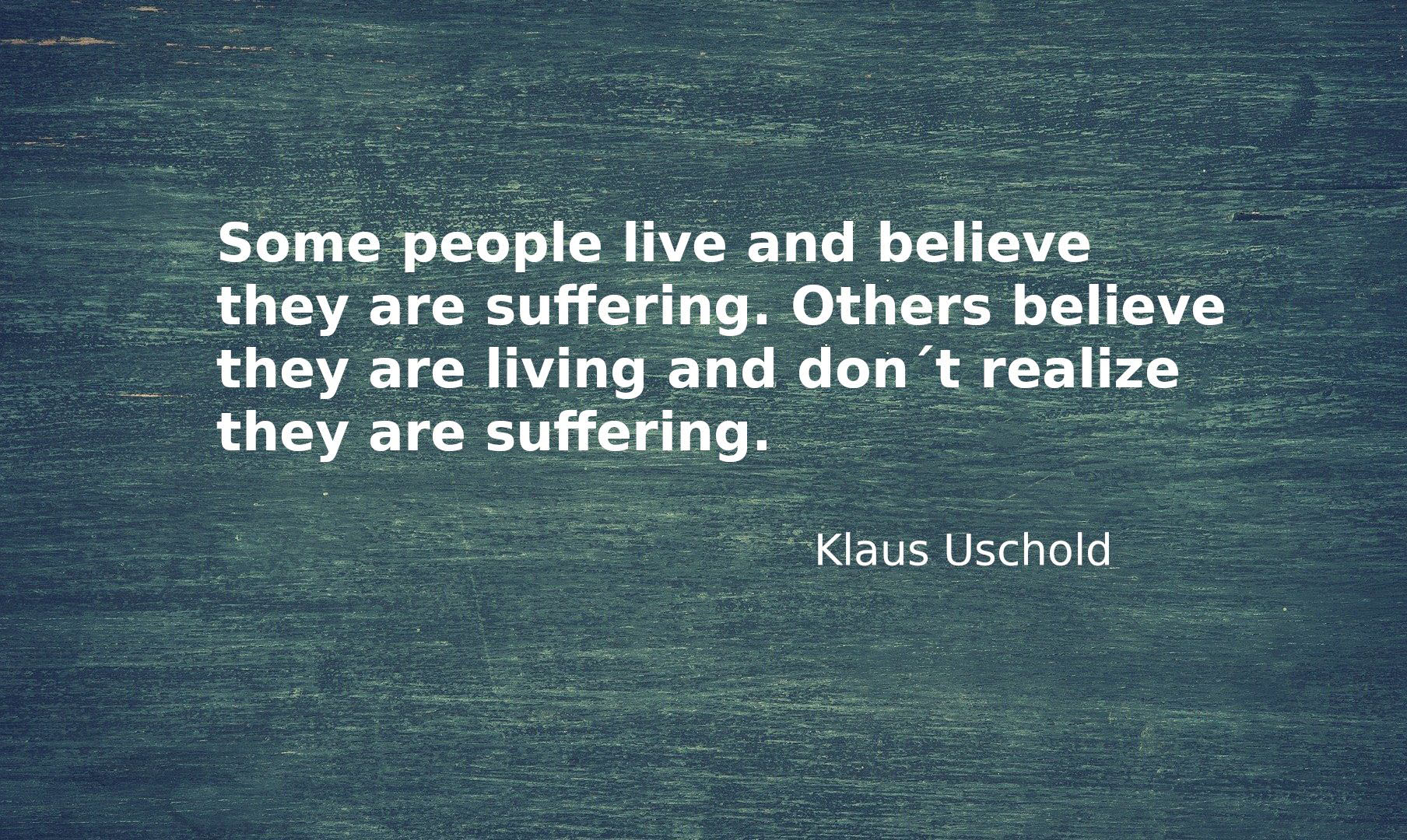 Nevertheless, a great many people continue to believe that circumstances will soon “return to normal”. They hope, we will be able to return to our usual and familiar daily lives. Hoping, that the increasingly absurd rules and regulations will not restrict the quality of their personal lifestyle much longer, they make certain compromises. In a more or less legal manner, they come to terms with what is. They do not dream of taking a public stand in any way or opposing what is happening. In doing so, they endure all sorts of cognitive dissonance in a flabbergasting way. They don’t want to unnecessarily jeopardize themselves, their jobs, their families, and their social fabric. Just hanging in there until things get better is their motto. They dismiss the question of what these “things” consists of and who is really responsible for it with a stressed and overwhelmed shrug of the shoulders.
Nevertheless, a great many people continue to believe that circumstances will soon “return to normal”. They hope, we will be able to return to our usual and familiar daily lives. Hoping, that the increasingly absurd rules and regulations will not restrict the quality of their personal lifestyle much longer, they make certain compromises. In a more or less legal manner, they come to terms with what is. They do not dream of taking a public stand in any way or opposing what is happening. In doing so, they endure all sorts of cognitive dissonance in a flabbergasting way. They don’t want to unnecessarily jeopardize themselves, their jobs, their families, and their social fabric. Just hanging in there until things get better is their motto. They dismiss the question of what these “things” consists of and who is really responsible for it with a stressed and overwhelmed shrug of the shoulders.
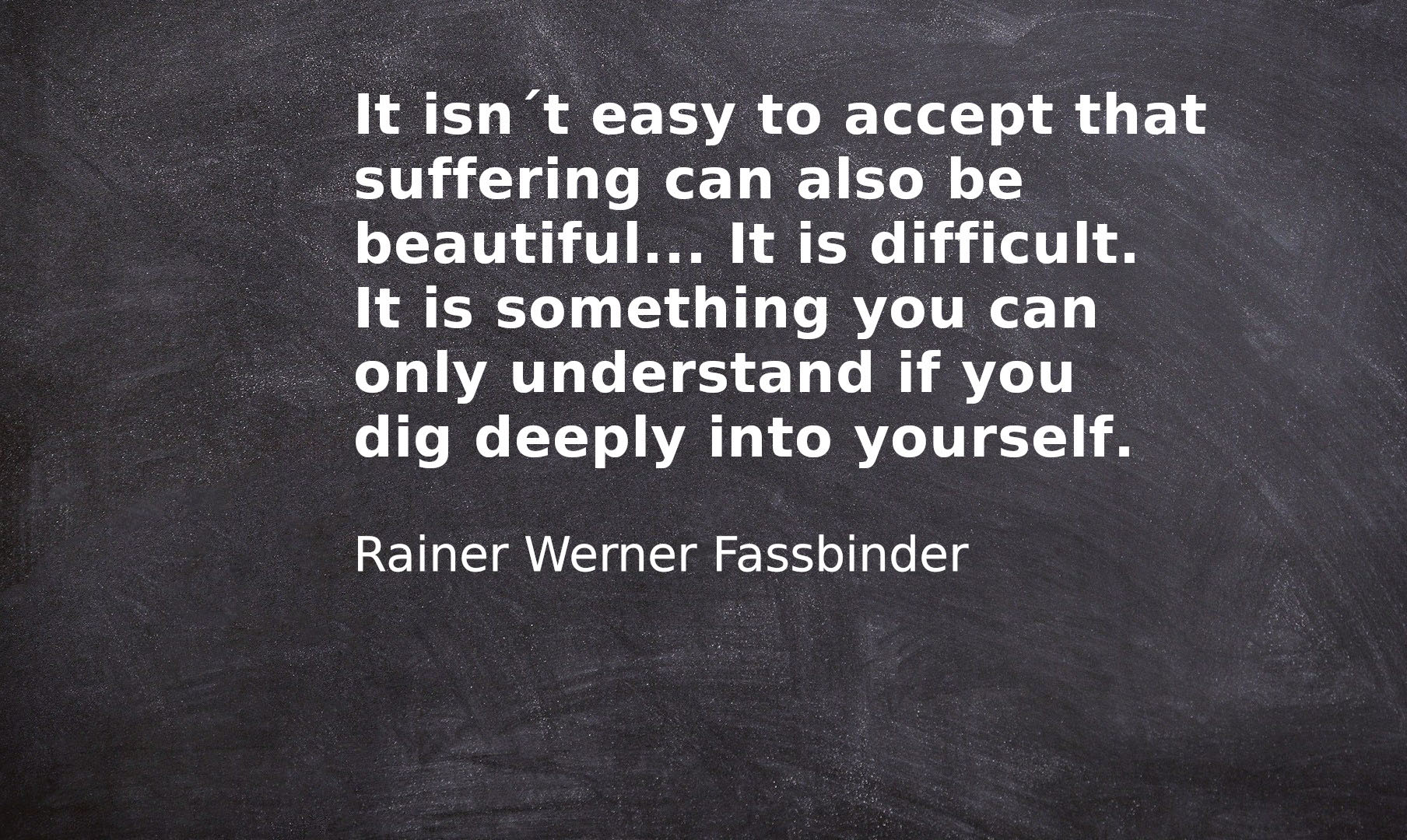 And then, of course, there are those for whom suffering and physical pain give real pleasure… But even they have their limits. I know from those who have experience with S&M practices and bondage that it takes a code for those involved to trust each other. So, a word or signal is agreed upon so that the particular action can be stopped. But this is not a game, and no code has been agreed upon that we can use to stop what is currently happening – if we wanted to. Nobody knows in which form this will happen and when. In any case, humanity’s capacity for suffering seems far from exhausted.
And then, of course, there are those for whom suffering and physical pain give real pleasure… But even they have their limits. I know from those who have experience with S&M practices and bondage that it takes a code for those involved to trust each other. So, a word or signal is agreed upon so that the particular action can be stopped. But this is not a game, and no code has been agreed upon that we can use to stop what is currently happening – if we wanted to. Nobody knows in which form this will happen and when. In any case, humanity’s capacity for suffering seems far from exhausted.
The boiling point is coming closer daily
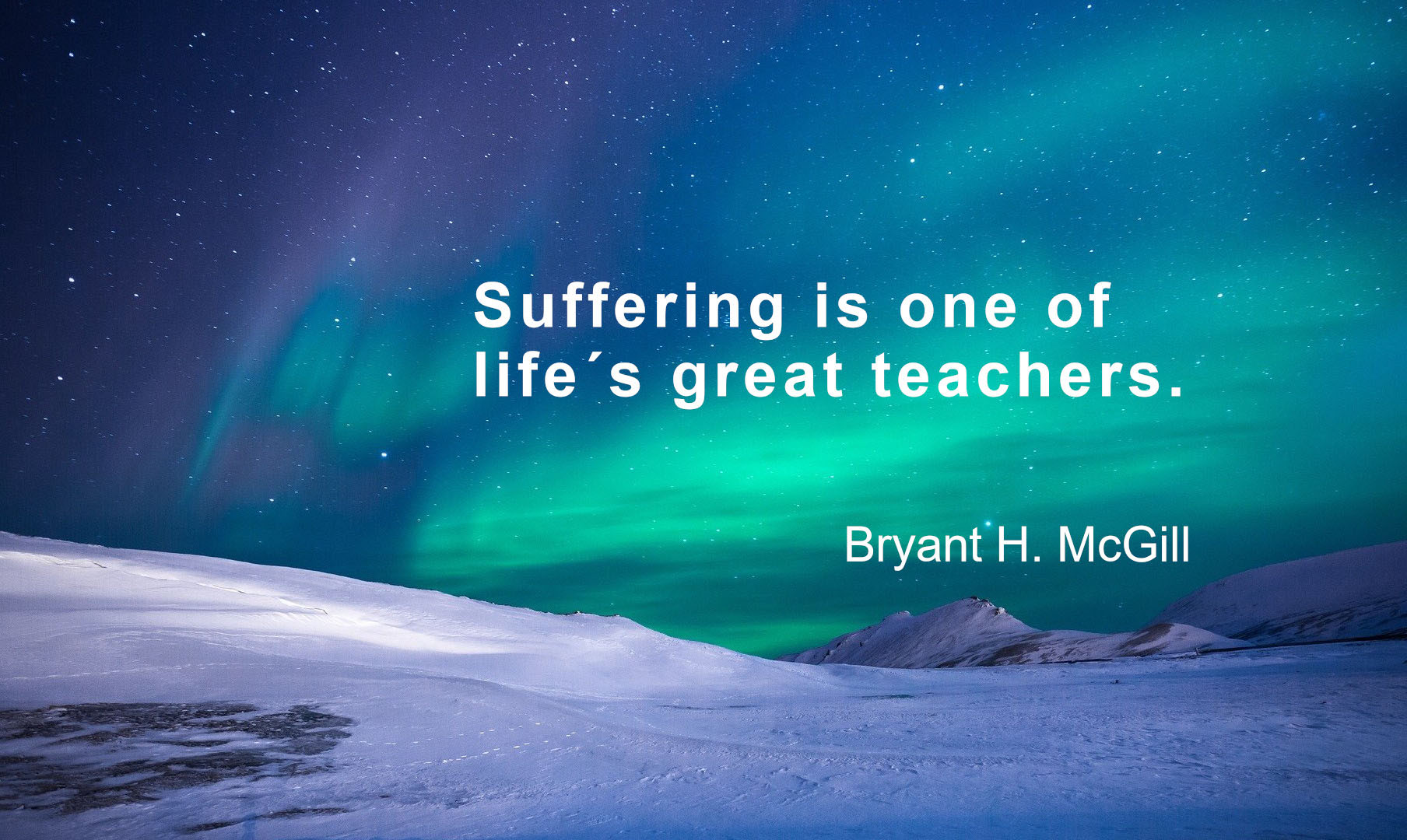 However, a growing number of people are less and less willing to put up with what is happening. In fact, they also have no desire to return to their world as it was “without the pandemic.” Their need for a more just and healthy world is growing.
However, a growing number of people are less and less willing to put up with what is happening. In fact, they also have no desire to return to their world as it was “without the pandemic.” Their need for a more just and healthy world is growing.
They long for a school system that truly meets the needs of children. A health care system that is truly interested in the well-being of the individual and not in the profits of the pharmaceutical industry is as also desired. As well as a transportation system that is good for the environment and not just for the wallets of fossil fuel traders. And they can also very well imagine a government or rather an administration that is not interested in power, money and control, but in a honoring, healthy and free coexistence. How something like this could look like, I have discussed several times. For example, in “A Vision Prayer”, “Our Visions right now are Key” and “Professions of the Future”.
Many of them quit their jobs or file lawsuits against their employers. They take their children out of schools and leave the country. They participate in demonstrations and fight in their own way and according to their abilities for freedom, justice, their freedom of expression and common sense. So far, they are still heavily criticized or even opposed in the public opinion. Many, however, leave it at taunts and a certain mockery – for they are to be ridiculed because of their lack of real understanding.
How great does the suffering have to become?
In my perception, we are moving toward an ever sharper polarization of inhumanity, heteronomy and obedience on the one hand and humanity, self-determination and creativity on the other. With slight exaggeration, I would say, we are in a gigantic battle of the currents of consciousness. Two of them are dominating the events: Power through fear and control versus love through trust and freedom.
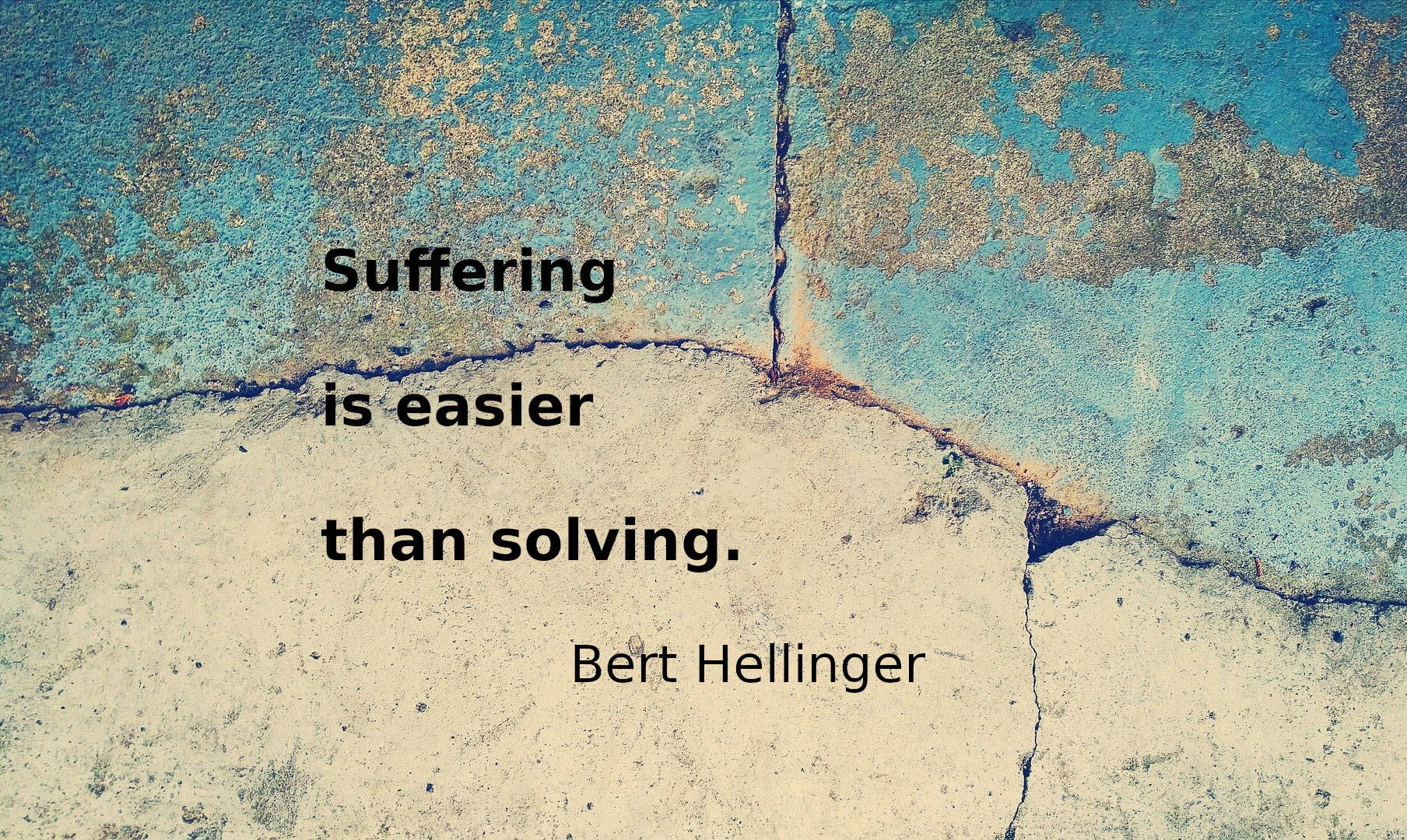 From my point of view, we are in the apocalypse – the time of revelation, as it has already been announced for mankind in many writings and prophecies of the past. And I perceive this, as I wrote above, as a phase of the “final examinations” of our present stage of evolution. Depending on how we individually perform in these exams, our further path of consciousness will be shaped.
From my point of view, we are in the apocalypse – the time of revelation, as it has already been announced for mankind in many writings and prophecies of the past. And I perceive this, as I wrote above, as a phase of the “final examinations” of our present stage of evolution. Depending on how we individually perform in these exams, our further path of consciousness will be shaped.
According to my research, the next examination phases could contain the following topics: the disclosure of worldwide criminal machinations right up to our leadership circles; the true extent of arms, drug and human trafficking; worldwide natural disasters, supply shortages, and – disclosure of the contact of all governments with extraterrestrial civilizations… As well as perhaps even their bodily appearance. However, this must not be necessarily sorrowful. I am personally very optimistic here.
Dealing constructively with suffering
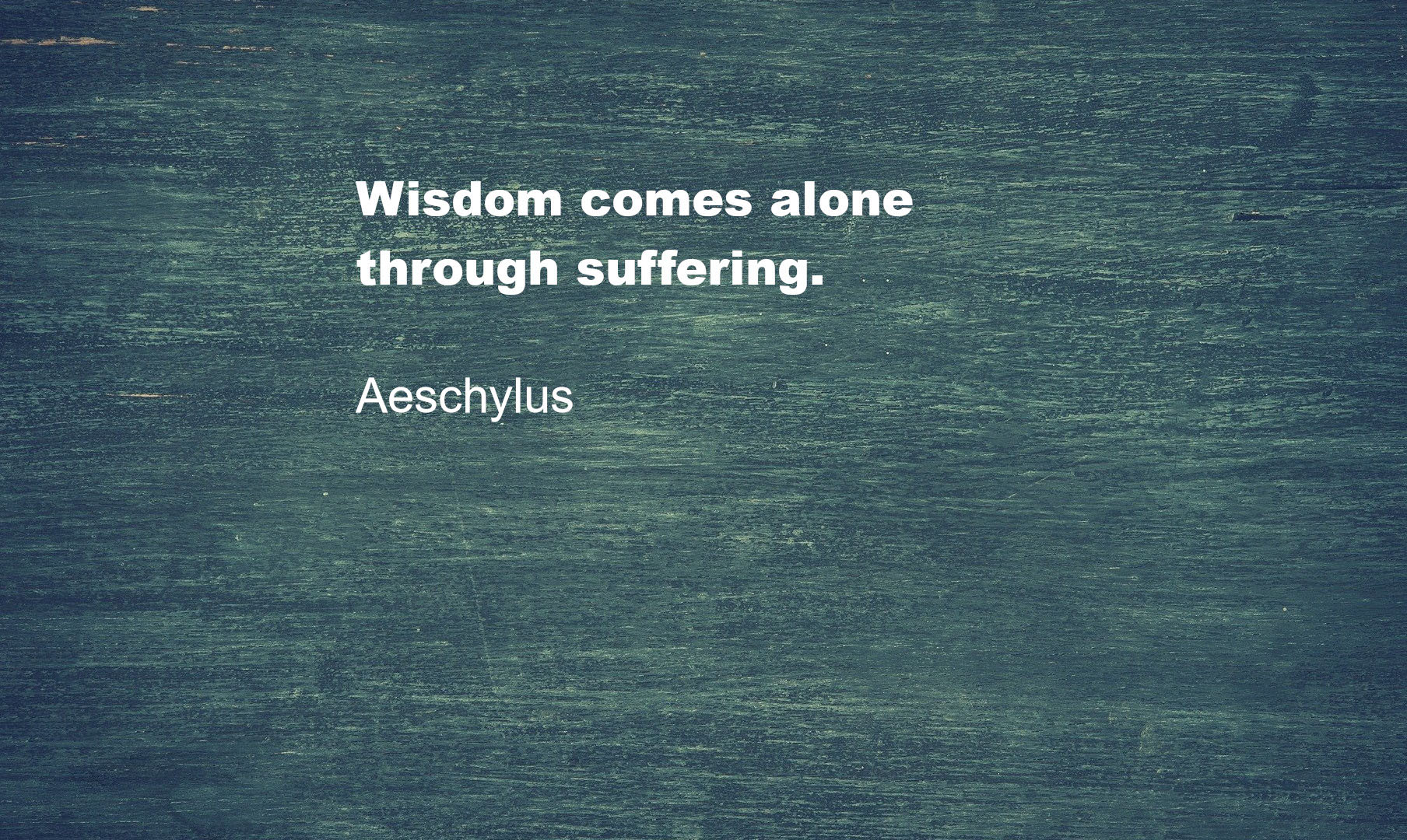 Our stresses and challenges will continue to increase. Therefore, it is important that we find a constructive way of dealing with suffering. Our own, but also that of our fellow human beings. It is important that we keep our confidence, our courage, our compassion and our love and our conscious creative power despite everything that is happening.
Our stresses and challenges will continue to increase. Therefore, it is important that we find a constructive way of dealing with suffering. Our own, but also that of our fellow human beings. It is important that we keep our confidence, our courage, our compassion and our love and our conscious creative power despite everything that is happening.
So I share my collection of knowledge and strategies for dealing with suffering and pain here. Surely there are many others. However, these have proven to be the most suitable for me personally so far.
Suffering always makes us a victim, responsibility a creator
As long as we suffer from what happens to us we are helpless and powerless. But as other wise people have often said: we may not always be able to change what happens to us, but we have a lot of influence on how we deal with it. Moreover, I am convinced that we significantly co-create our experience through our values and perceptions. Or as it is also so wisely put: our perception determines our experience, not the other way around.
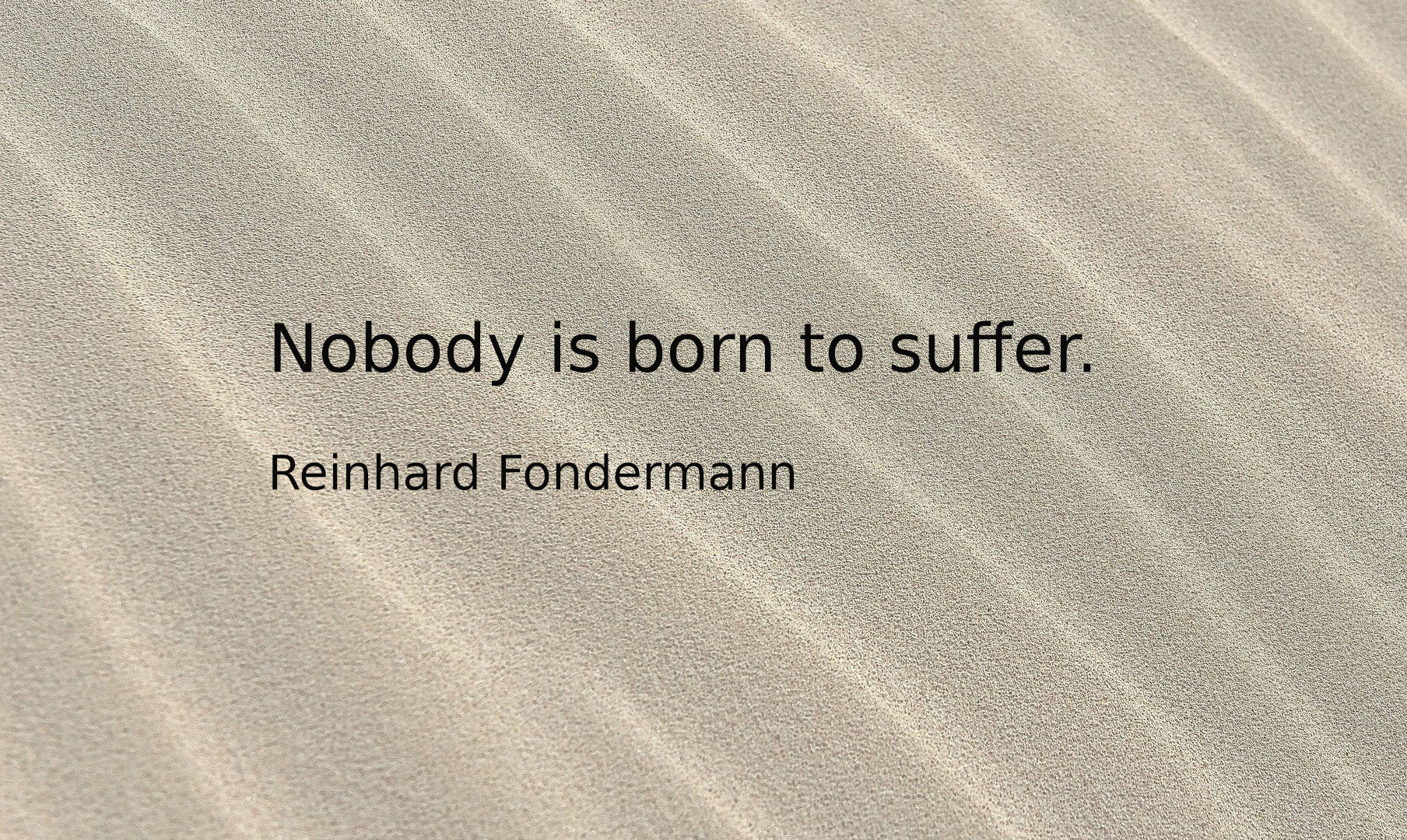 So, if we choose a wise way of dealing with what happens to us and direct our perception towards something good – our experience will change as well. It is also very helpful and important to distinguish between weakening self-pity and strengthening self-compassion.
So, if we choose a wise way of dealing with what happens to us and direct our perception towards something good – our experience will change as well. It is also very helpful and important to distinguish between weakening self-pity and strengthening self-compassion.
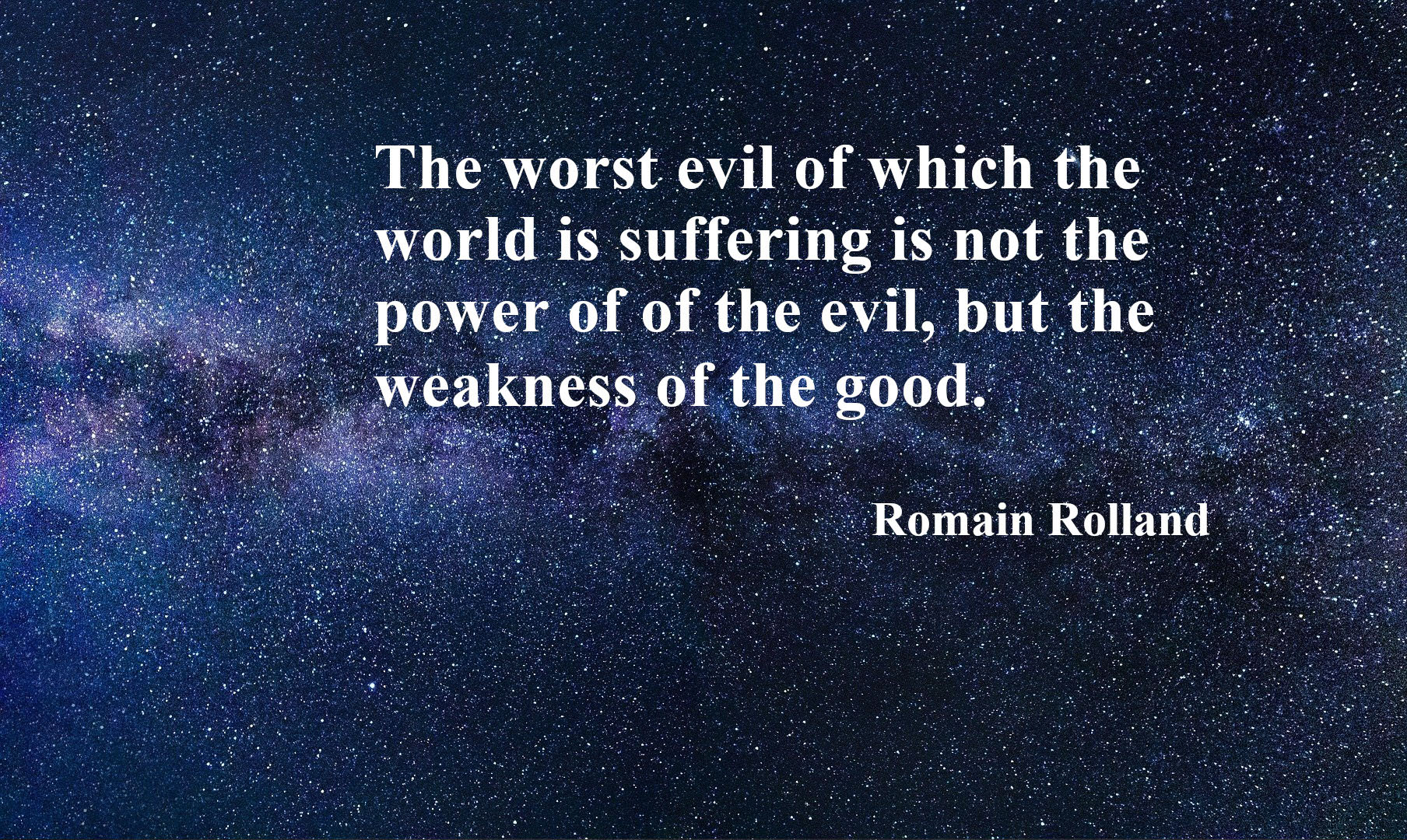 Personally, I have been able to transform many adverse “dark” situations into “light” ones. By asking myself: what purpose could this experience serve? For what reason could I have co-created it? And what aspect of me was in the lead at that moment? What experience, what lesson, what growth potential is this really about? I don’t always find the answers on my own. Then I ask my wise friends to illuminate this with me. If I can then grasp what the experience in question is or could be about, it is much easier for me to find a good solution. Usually, it is about deepening self-acceptance, humbleness, compassion and love. This can sometimes even result in healthy, drawing clear boundaries, assertion of my truth and active resistance. And of course, it is always and fundamentally about growth of consciousness!
Personally, I have been able to transform many adverse “dark” situations into “light” ones. By asking myself: what purpose could this experience serve? For what reason could I have co-created it? And what aspect of me was in the lead at that moment? What experience, what lesson, what growth potential is this really about? I don’t always find the answers on my own. Then I ask my wise friends to illuminate this with me. If I can then grasp what the experience in question is or could be about, it is much easier for me to find a good solution. Usually, it is about deepening self-acceptance, humbleness, compassion and love. This can sometimes even result in healthy, drawing clear boundaries, assertion of my truth and active resistance. And of course, it is always and fundamentally about growth of consciousness!
We can transform ourselves from victim to creator
Recently, I came to understand something fundamental. Michael Roads, the spiritual teacher and mystic from Australia and a dear friend and mentor to me, always says so beautifully: Where we focus, energy flows – where it connects and creates. The shorter and more familiar version of this, which already accompanies the current shift in consciousness as a dictum, is: “Our attention creates our reality.” For me, this also includes the phrase: “Accepting what is makes transformation possible.”
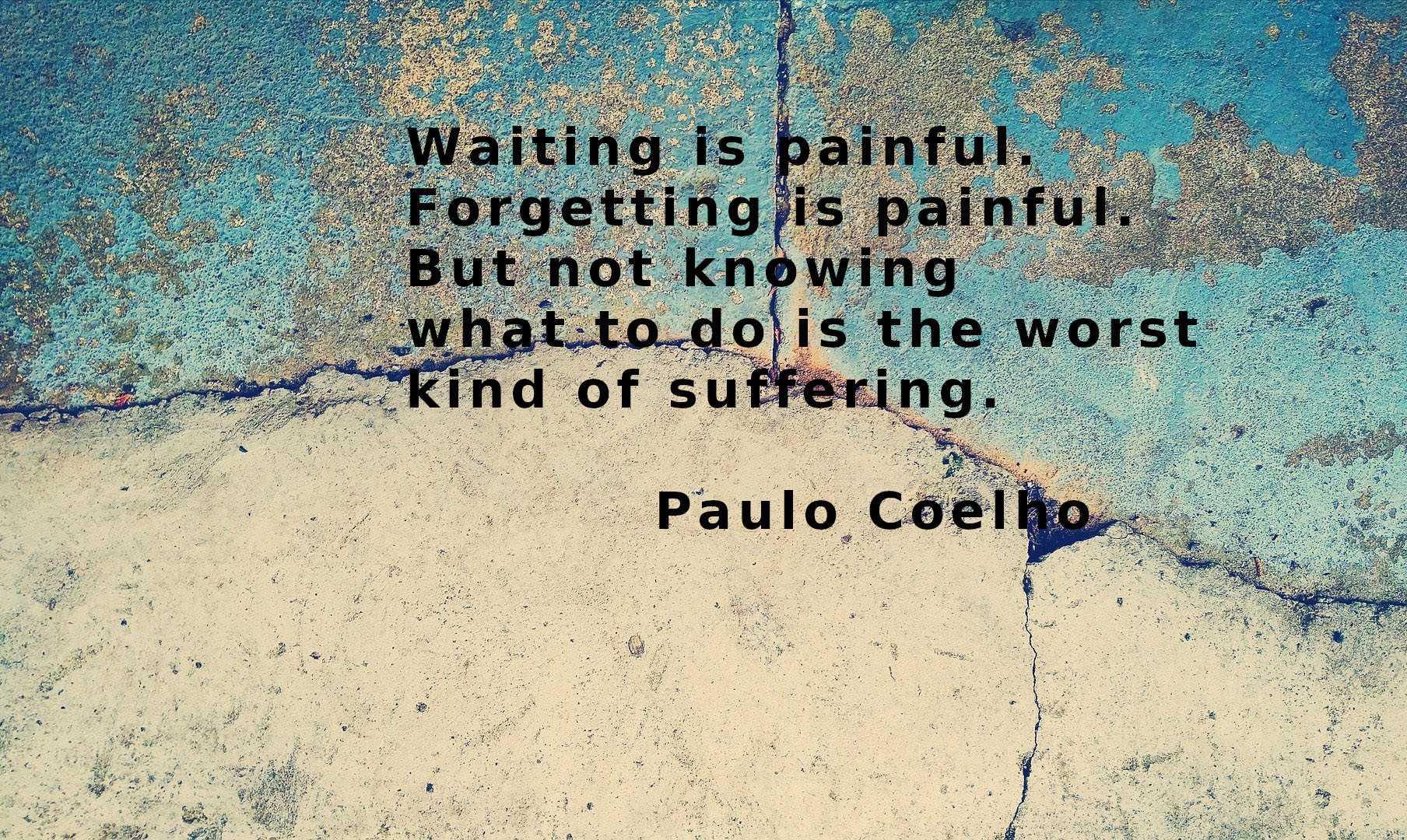 So far so good. But it wasn’t until I read a text by Canadian healer Jacques Martel about his work that the proverbial penny dropped. I realized that he sees gratitude as the prerequisite for any healing,
So far so good. But it wasn’t until I read a text by Canadian healer Jacques Martel about his work that the proverbial penny dropped. I realized that he sees gratitude as the prerequisite for any healing,
For a long time I struggled with this and thought: if I go into acceptance of what I dislike, does life “think” I am grateful for the unfortunate circumstances and will give me more of it? But recently I understood on a deeper level that life works through us. And its vehicle are my thoughts and feelings – which ultimately determine my perception. Not the other way around!
Focus on acceptance and gratitude
Once I can see and feel the unfortunate circumstances from a perspective of unconditional gratitude, I experience two benefits. First, they then no longer burden me, and second, I then resonate with events and experiences that strengthen me in my honest gratitude. Acceptance in gratitude, then, enables change. Because life strengthens my feeling – not the circumstances!
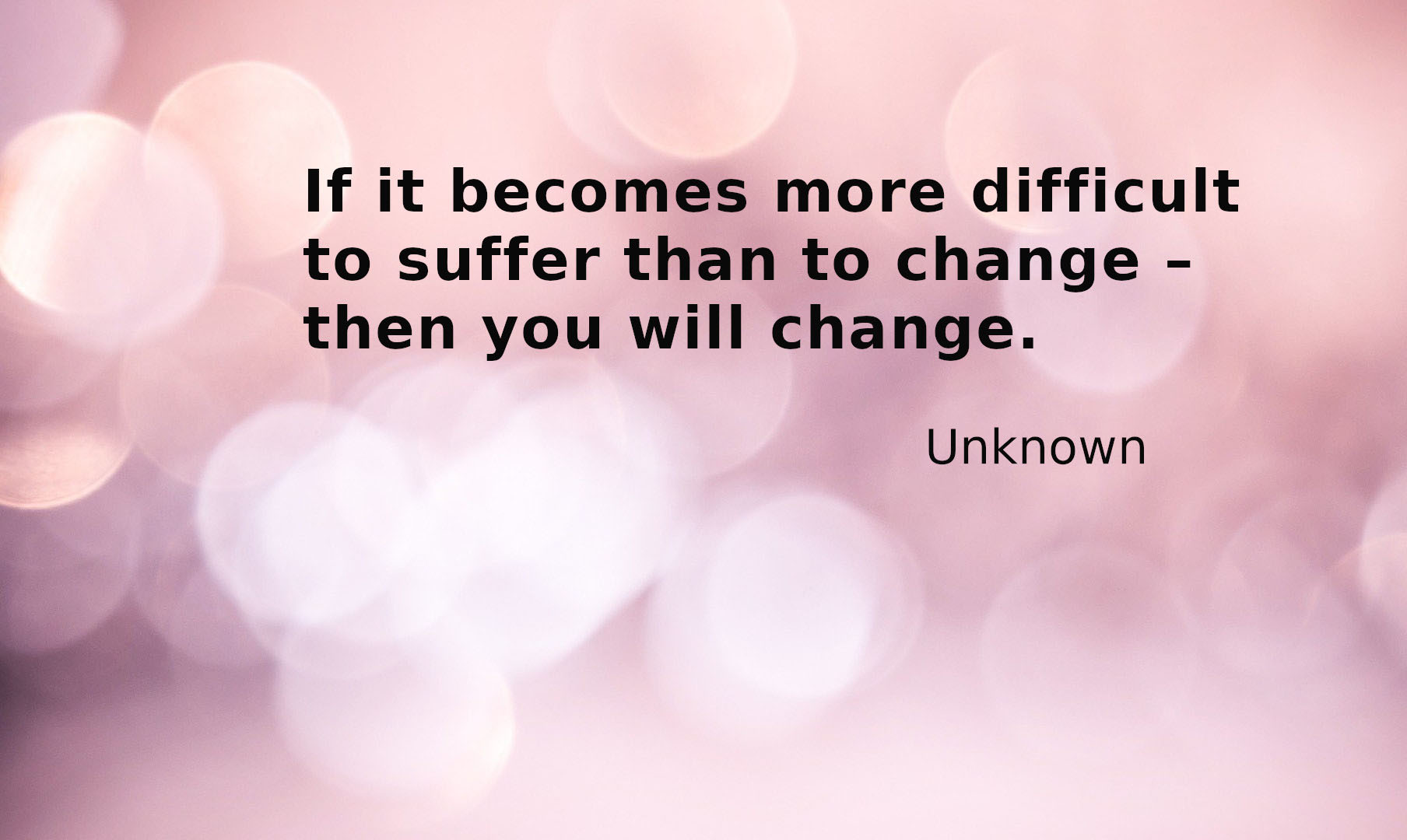 Conversely, suffering is an expression of my resistance to a possible change. For I give life the signal through my focus on suffering that I want to suffer, since that is where my attention is flowing. But if I acknowledge the situation as it is and avoid the stressful evaluation, I can also let it go without any attachment. Then I no longer bind it to my experience of reality with my (negative) feelings.
Conversely, suffering is an expression of my resistance to a possible change. For I give life the signal through my focus on suffering that I want to suffer, since that is where my attention is flowing. But if I acknowledge the situation as it is and avoid the stressful evaluation, I can also let it go without any attachment. Then I no longer bind it to my experience of reality with my (negative) feelings.
Letting go opens the way for creative impulses
Then I can change my state of mind and heart in the here and now and direct myself towards the good. As a result, fear, anger and powerlessness no longer flow through me. The way is free for creativity. Now I can feel into and consider what might be the wisest way to promote that which is important to me to come into being. Sometimes I even experience seemingly surprising and helpful interventions from outside!
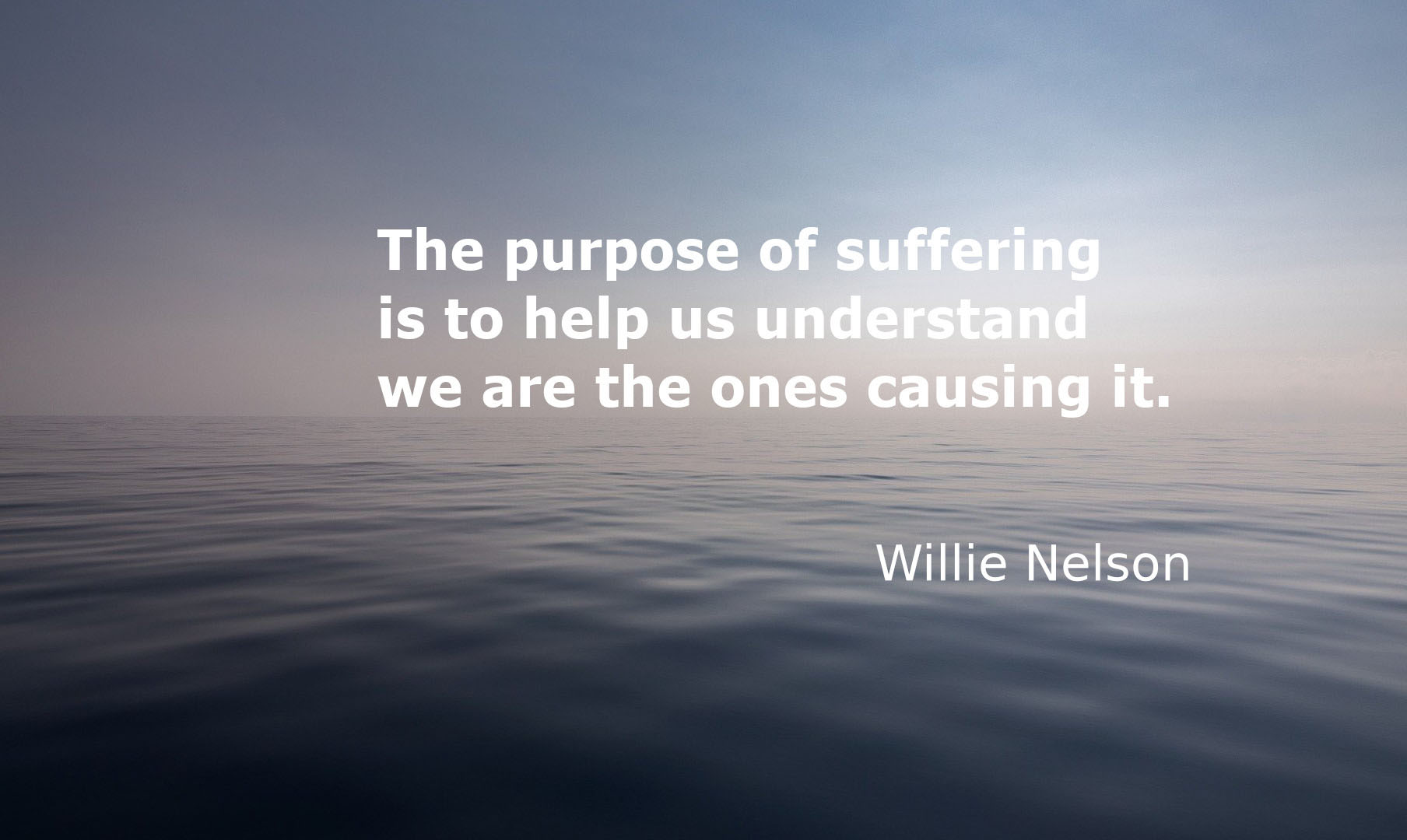 However, if letting go is difficult for me and I seemingly want to hold on to my suffering for some reason, it is worthwhile to examine what benefits this brings me right now. Maybe I can use it to justify my fear of having to act. Or I can get compassionate attention. Or I can maintain my connection to fellow sufferers… It is such a crux with letting go. For often it means giving up cherished objects or habits. Similar to having to give up one or more favorite objects when renovating an apartment, so that a more suitable one can take its place.
However, if letting go is difficult for me and I seemingly want to hold on to my suffering for some reason, it is worthwhile to examine what benefits this brings me right now. Maybe I can use it to justify my fear of having to act. Or I can get compassionate attention. Or I can maintain my connection to fellow sufferers… It is such a crux with letting go. For often it means giving up cherished objects or habits. Similar to having to give up one or more favorite objects when renovating an apartment, so that a more suitable one can take its place.
Acknowledge the nasty, but focus on the good
So, I make sure to acknowledge the ills, but not dwell on them too long. Nor do I gloss over them, but accept that they are just there as an expression of the current (collective)creation. And then I focus all the more thoroughly and intensively on the good.
Accordingly, I also see our current trials, though not pleasant, as necessary and important. They are obviously the best possible way to catapult us into the next stage of our evolution of consciousness. And I trust that we will then eventually be able to discard our human belief that suffering is needed for growth in consciousness. I would find the experience of growing through joy and love far more enjoyable.
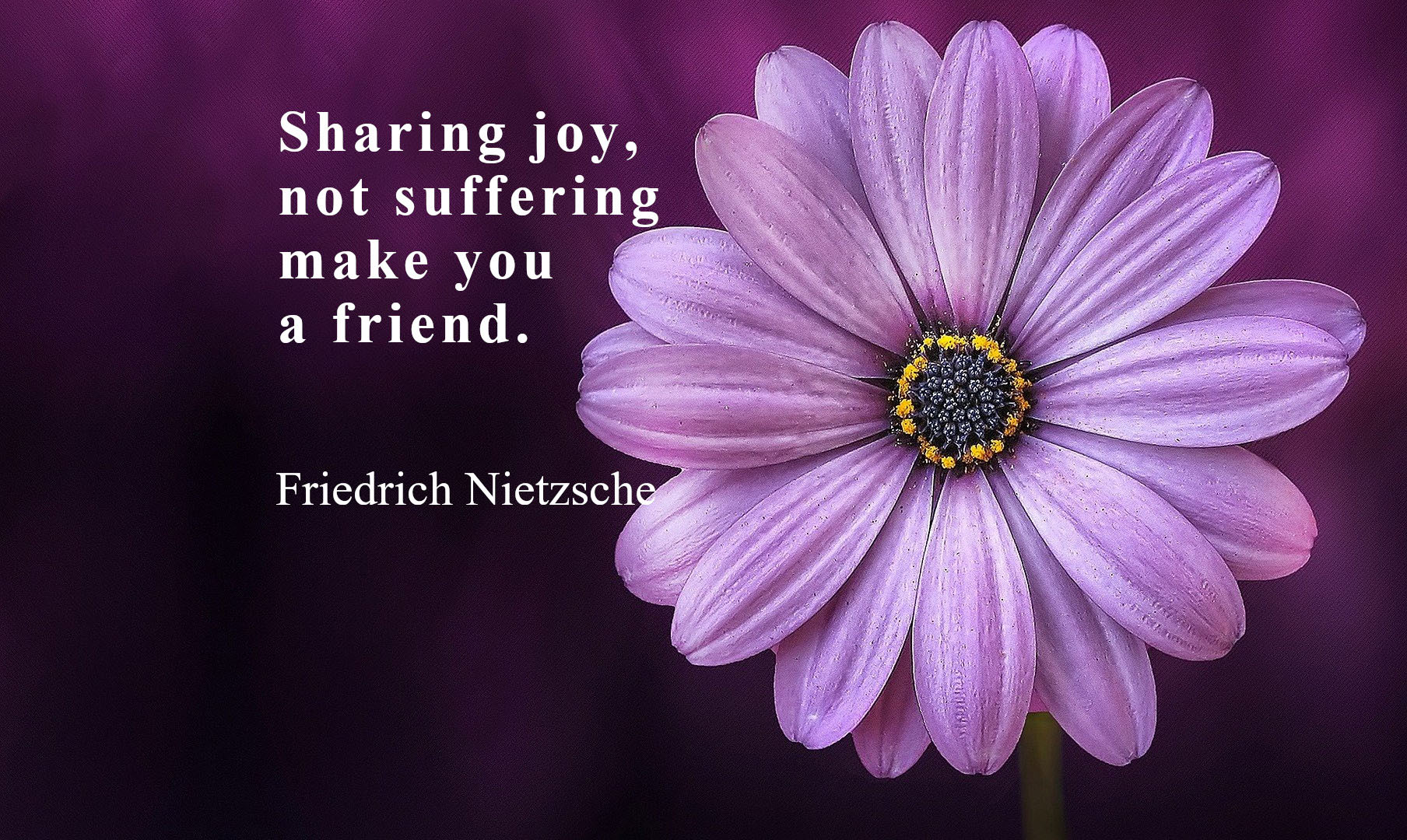 By the way, after a brief research I found that in German and English there are far more synonyms for lamenting and complaining than for rejoicing and celebrating. Also, it seems that we tend to experience joy passively – e.g., I am delighted, happy, thrilled, rather than these being active activities. Whereas we are quite active in our suffering… I wish for this relation to be reversed! And will gladly make my contribution to it!
By the way, after a brief research I found that in German and English there are far more synonyms for lamenting and complaining than for rejoicing and celebrating. Also, it seems that we tend to experience joy passively – e.g., I am delighted, happy, thrilled, rather than these being active activities. Whereas we are quite active in our suffering… I wish for this relation to be reversed! And will gladly make my contribution to it!
I know that I am a kind of “a midwife of becoming” and have a certain skill in accompanying people from their old to their new “self”. As well as to awaken the potentials sleeping in us and to find a suitable expression for them. Exactly these potentials are needed in the times to come.
Furthermore, I can feel and trust that these new times will be characterized by more and more love, mindful and cheerful togetherness, a conscious and harmonious interaction with nature and a freedom as we never knew it before. Even the adversities of our current everyday life do not dissuade me from this… Or in other words: when these trials are behind us, and this “exam period” is finally over, we shall celebrate that earth laughs with our hearts!




